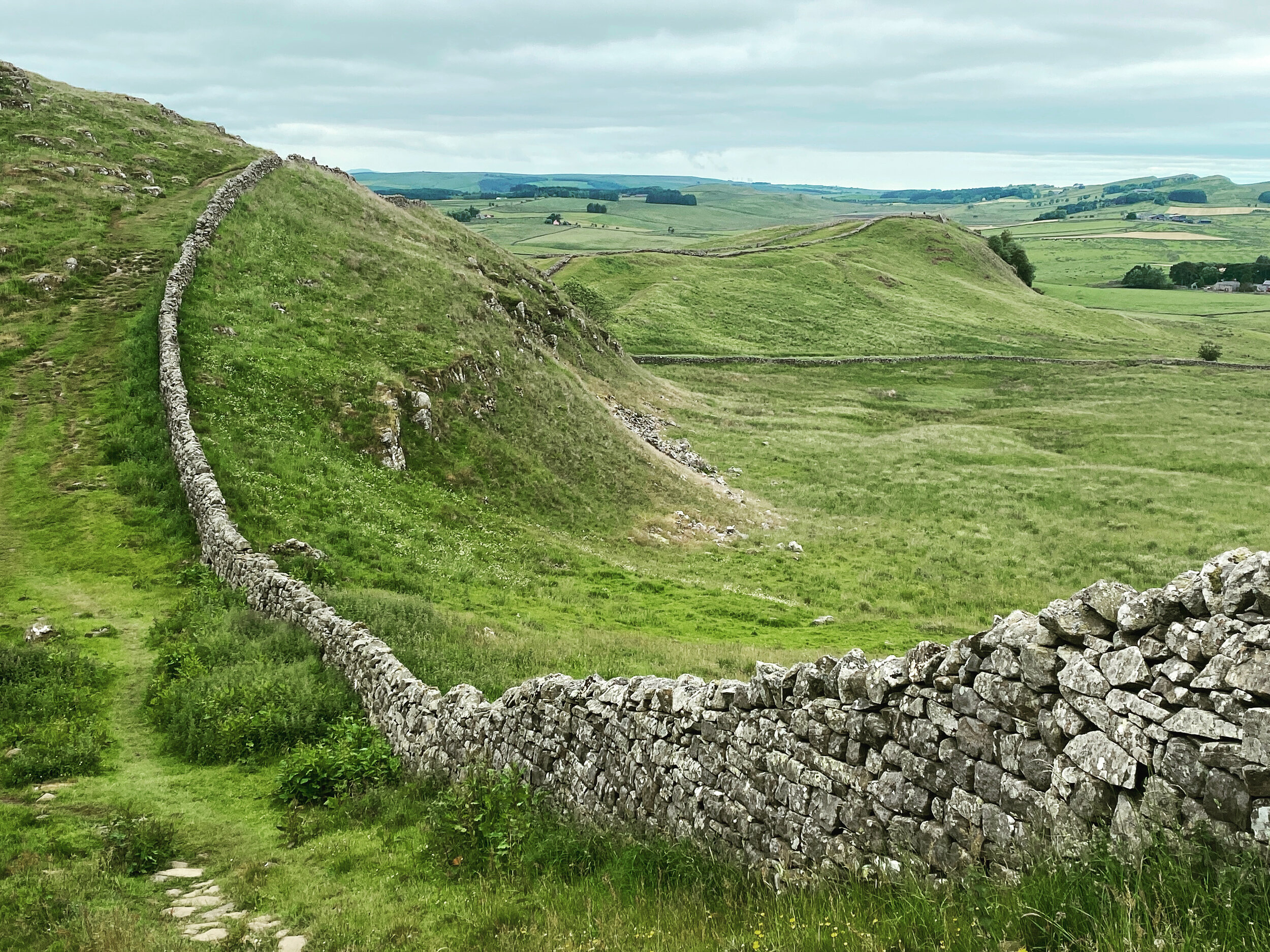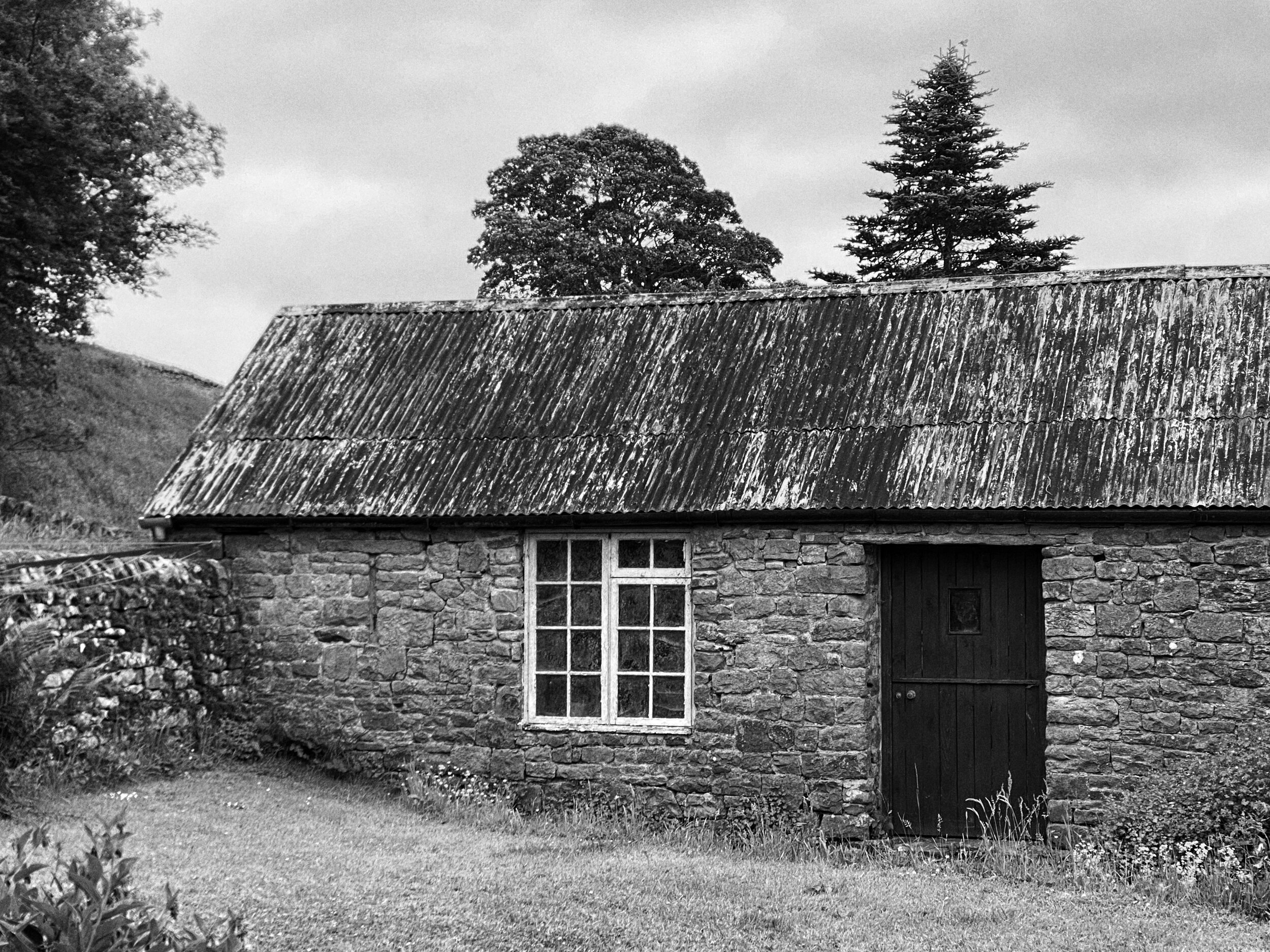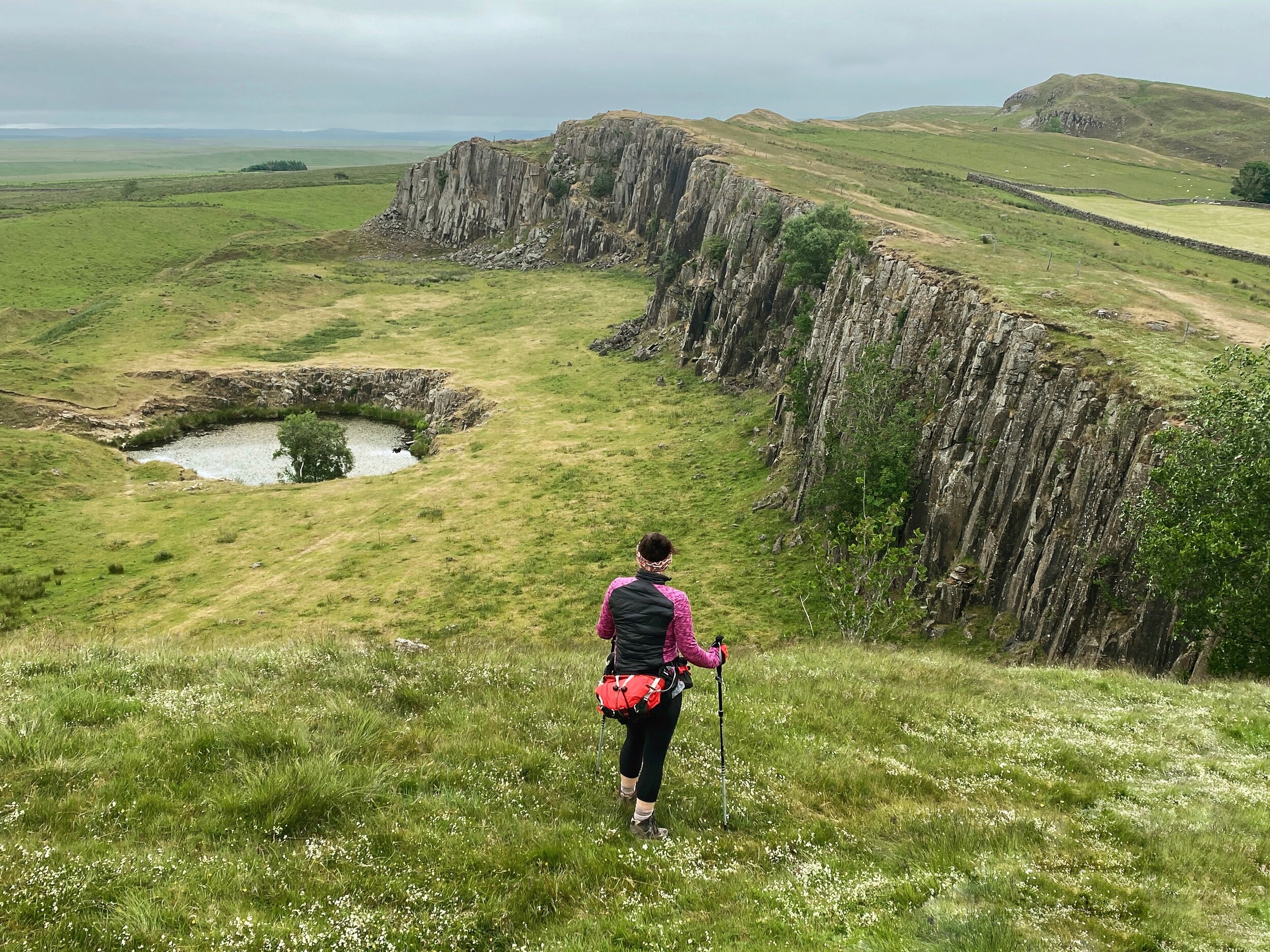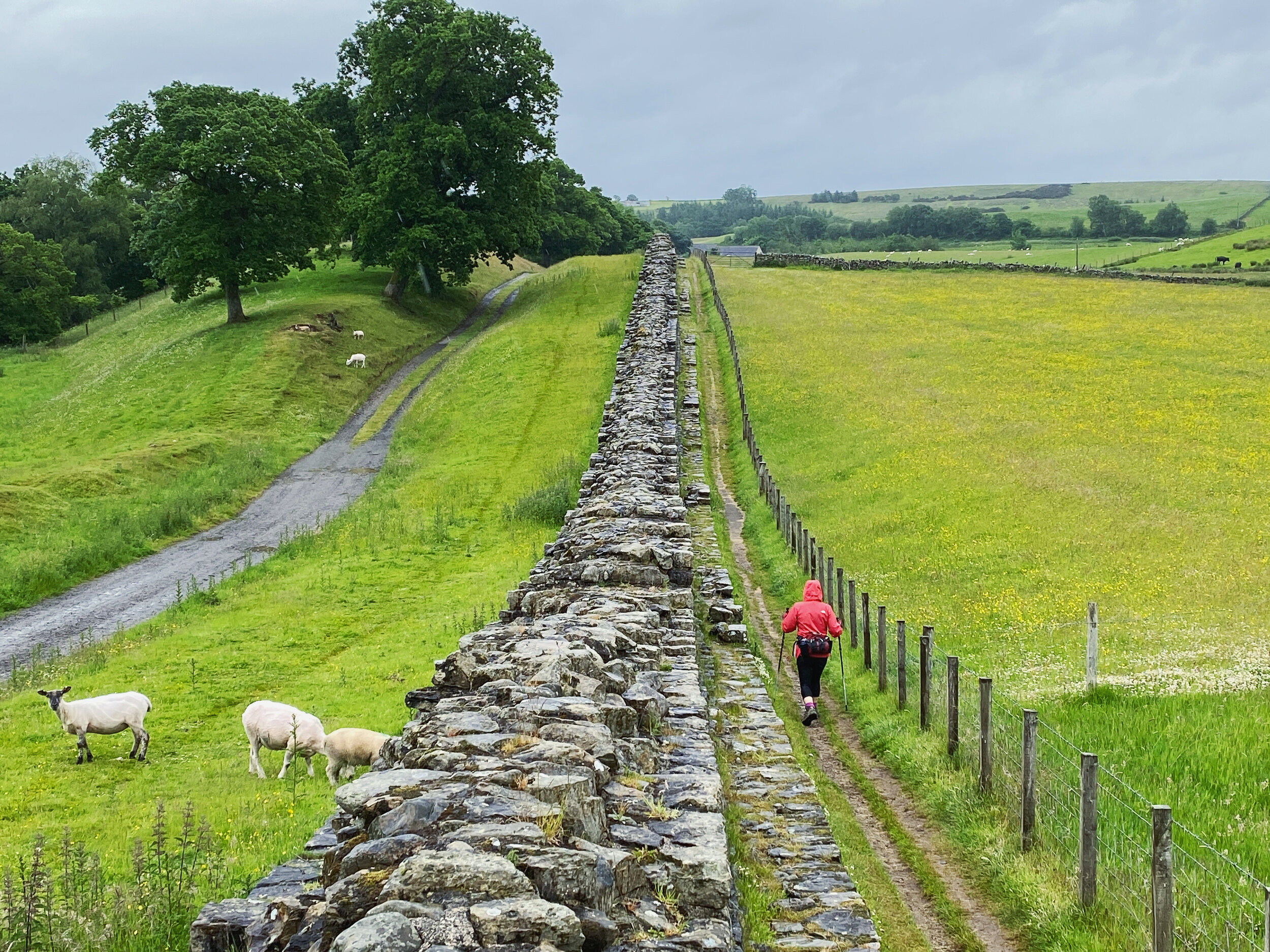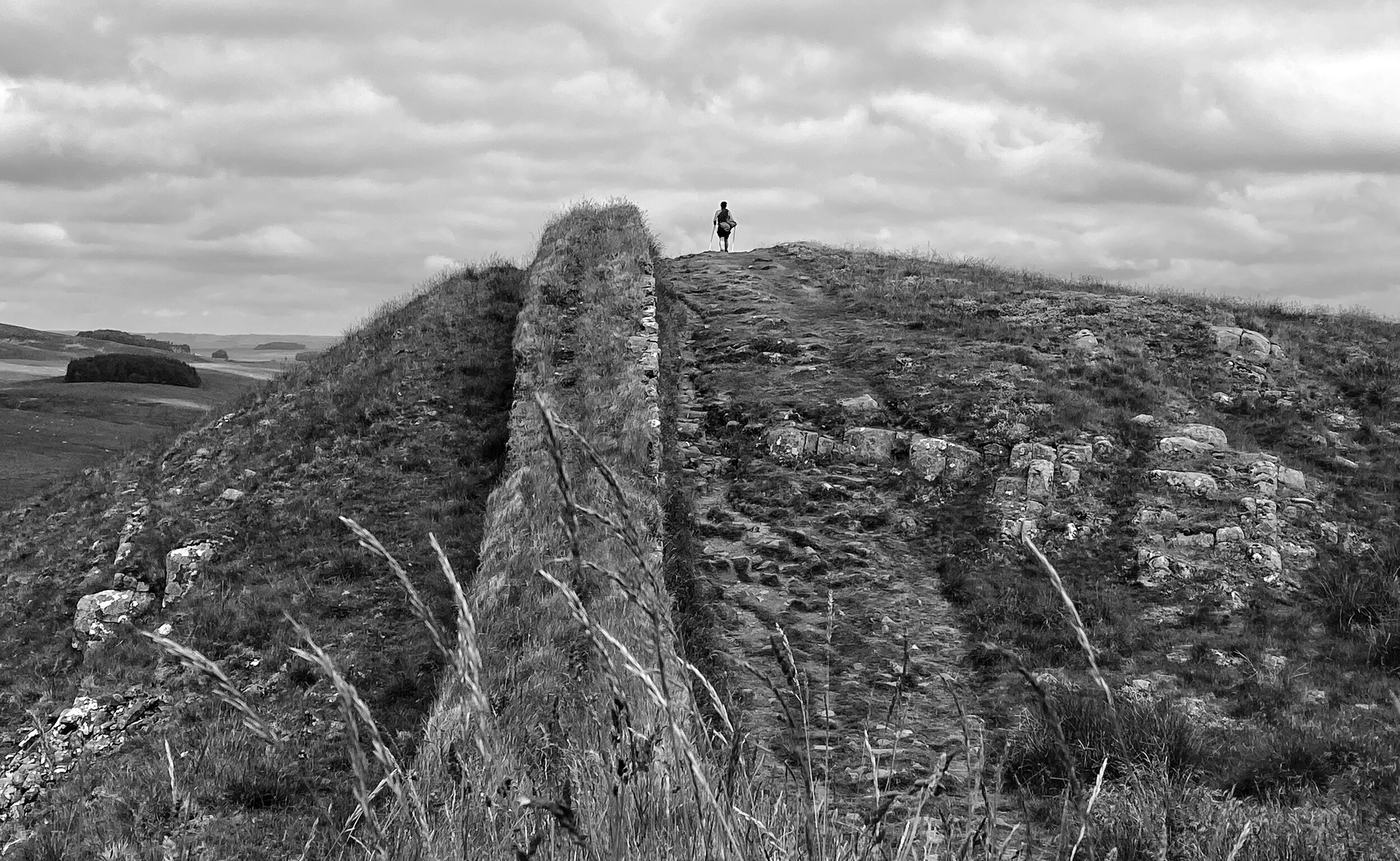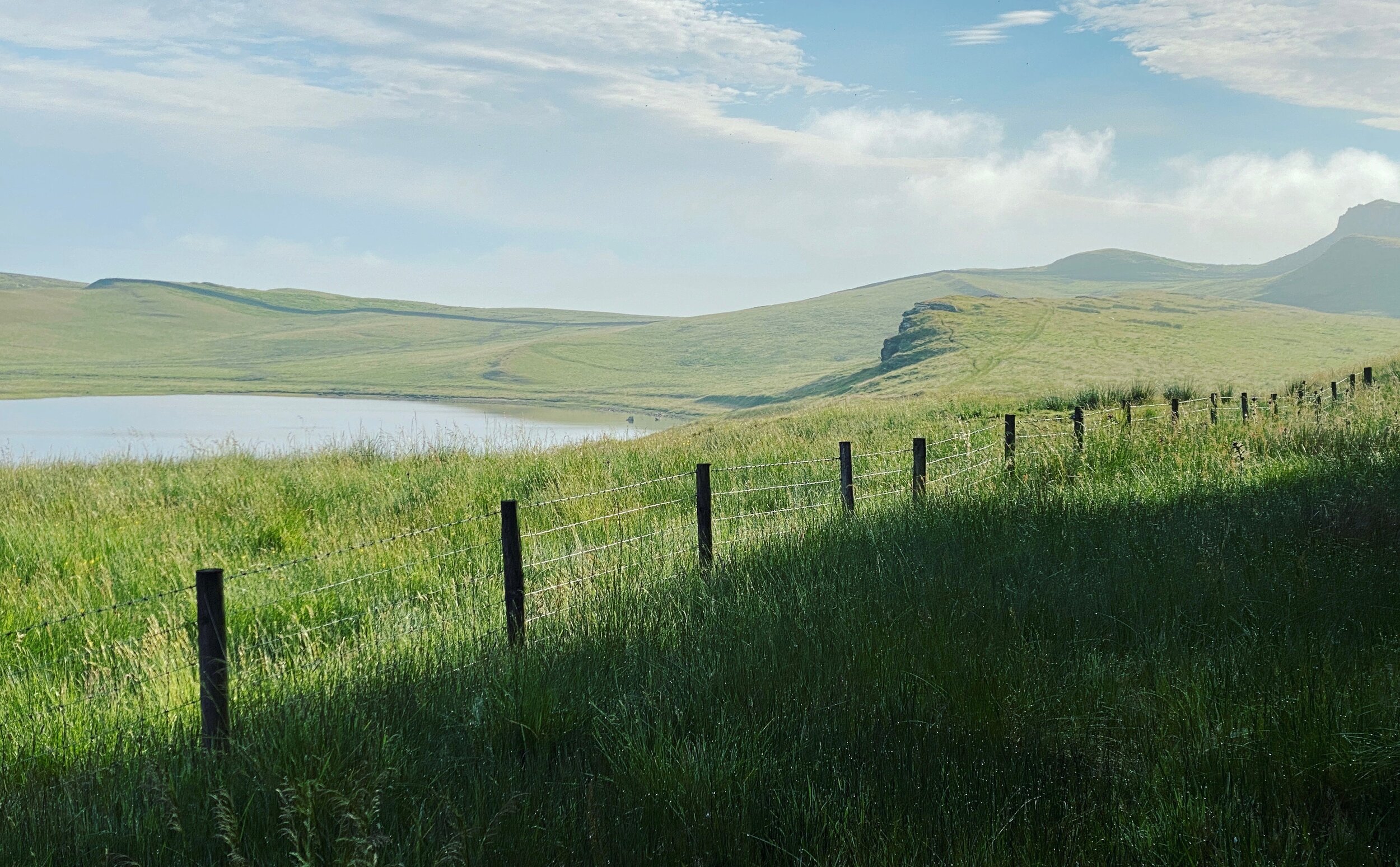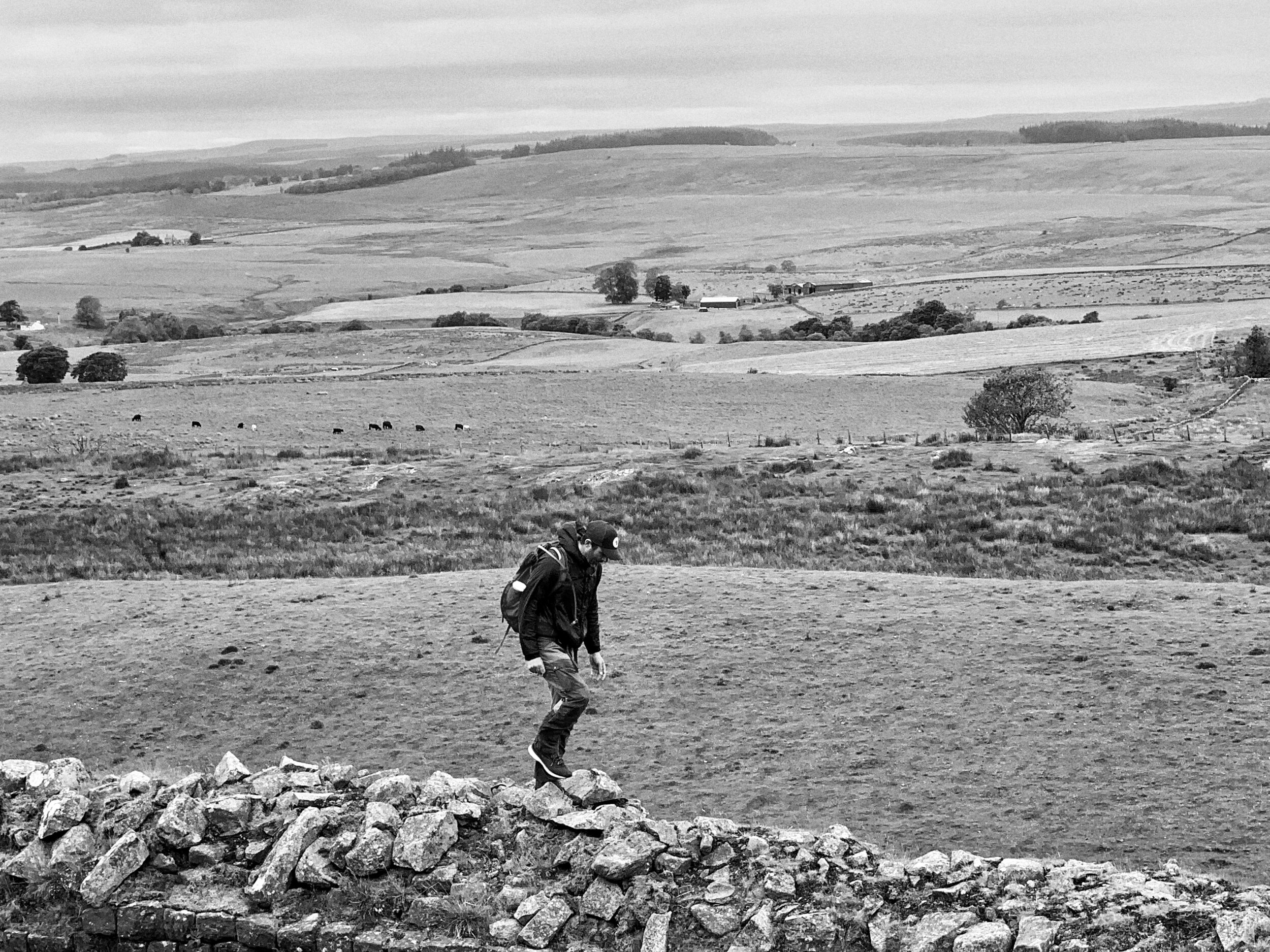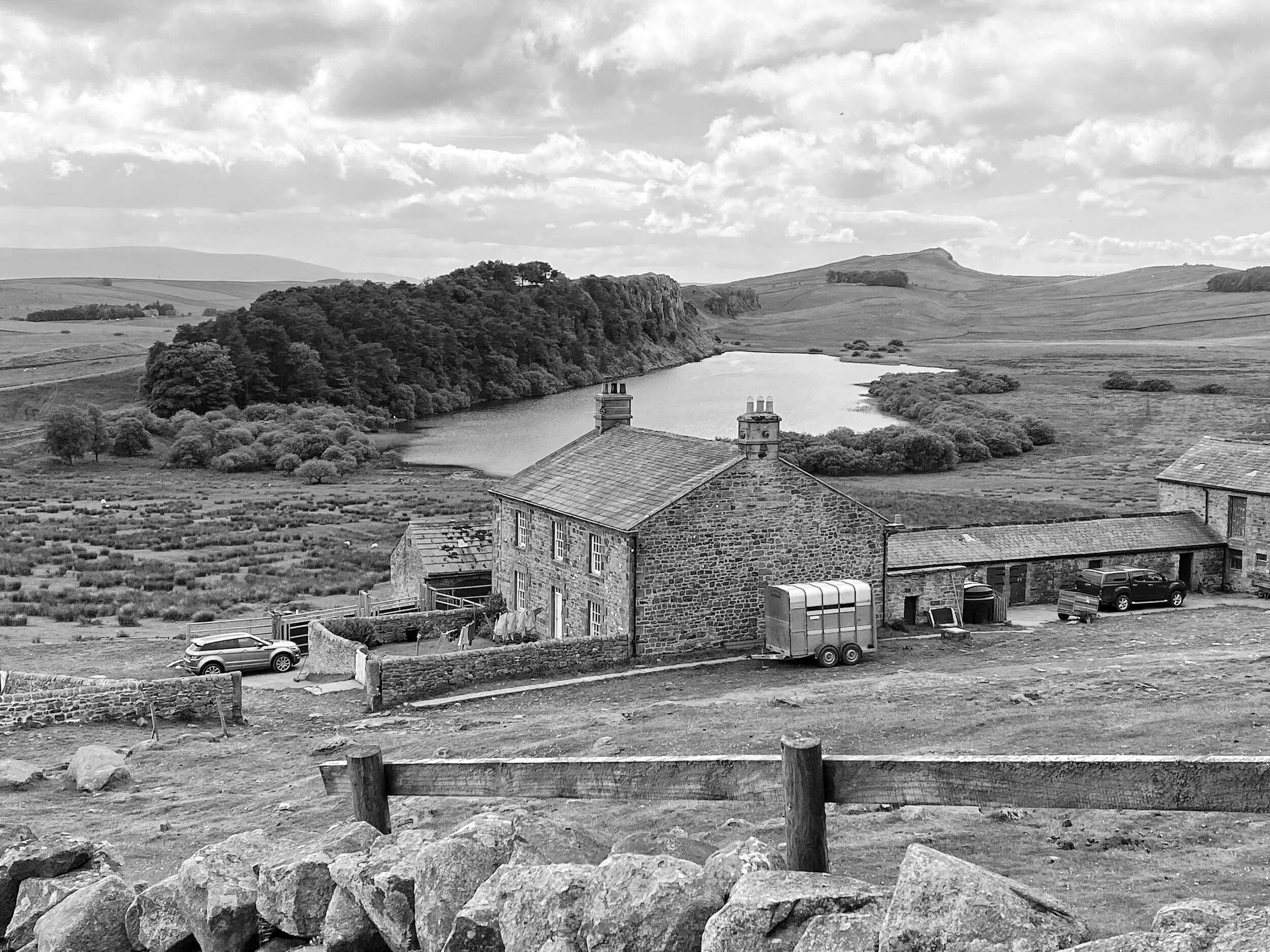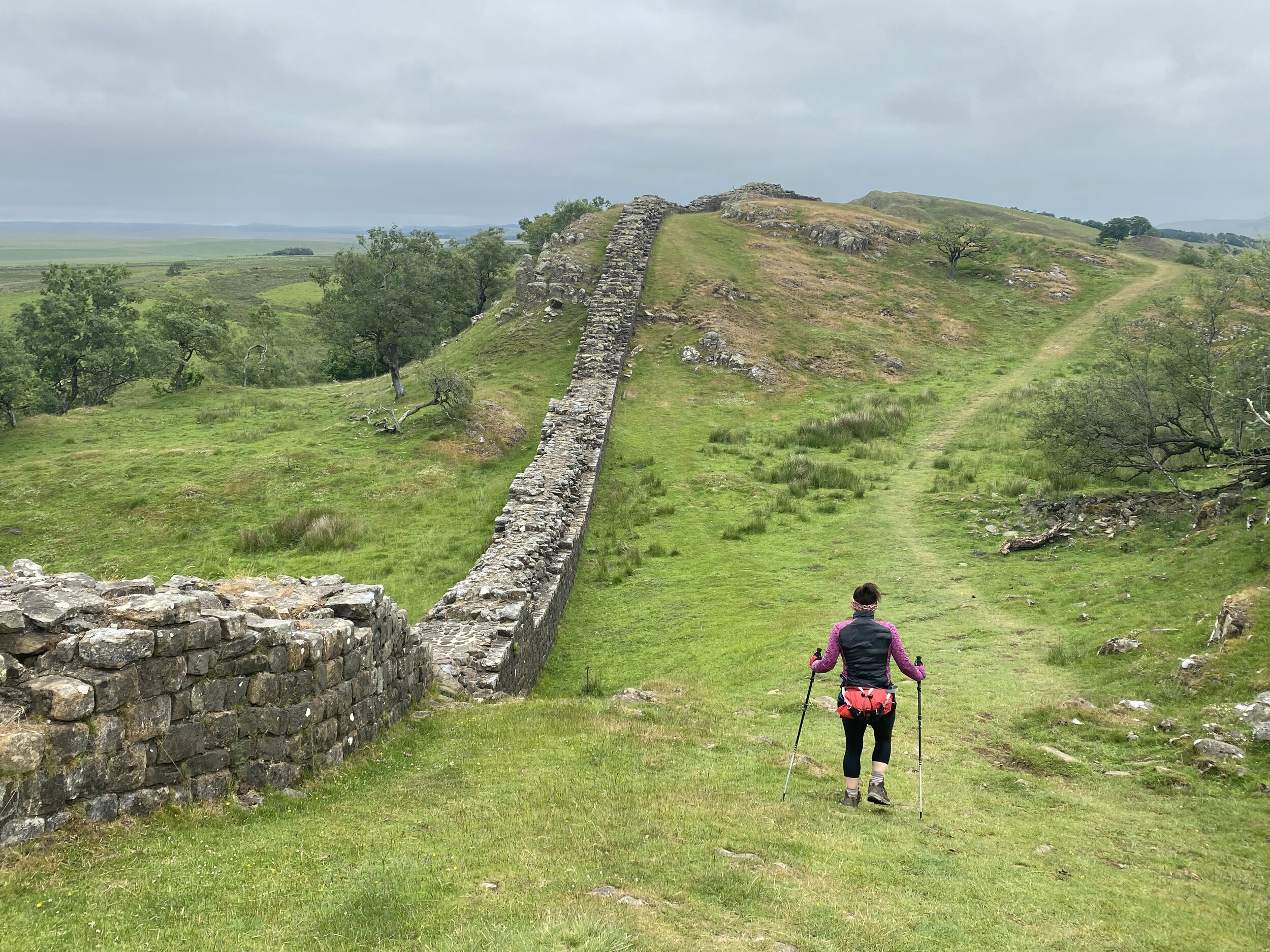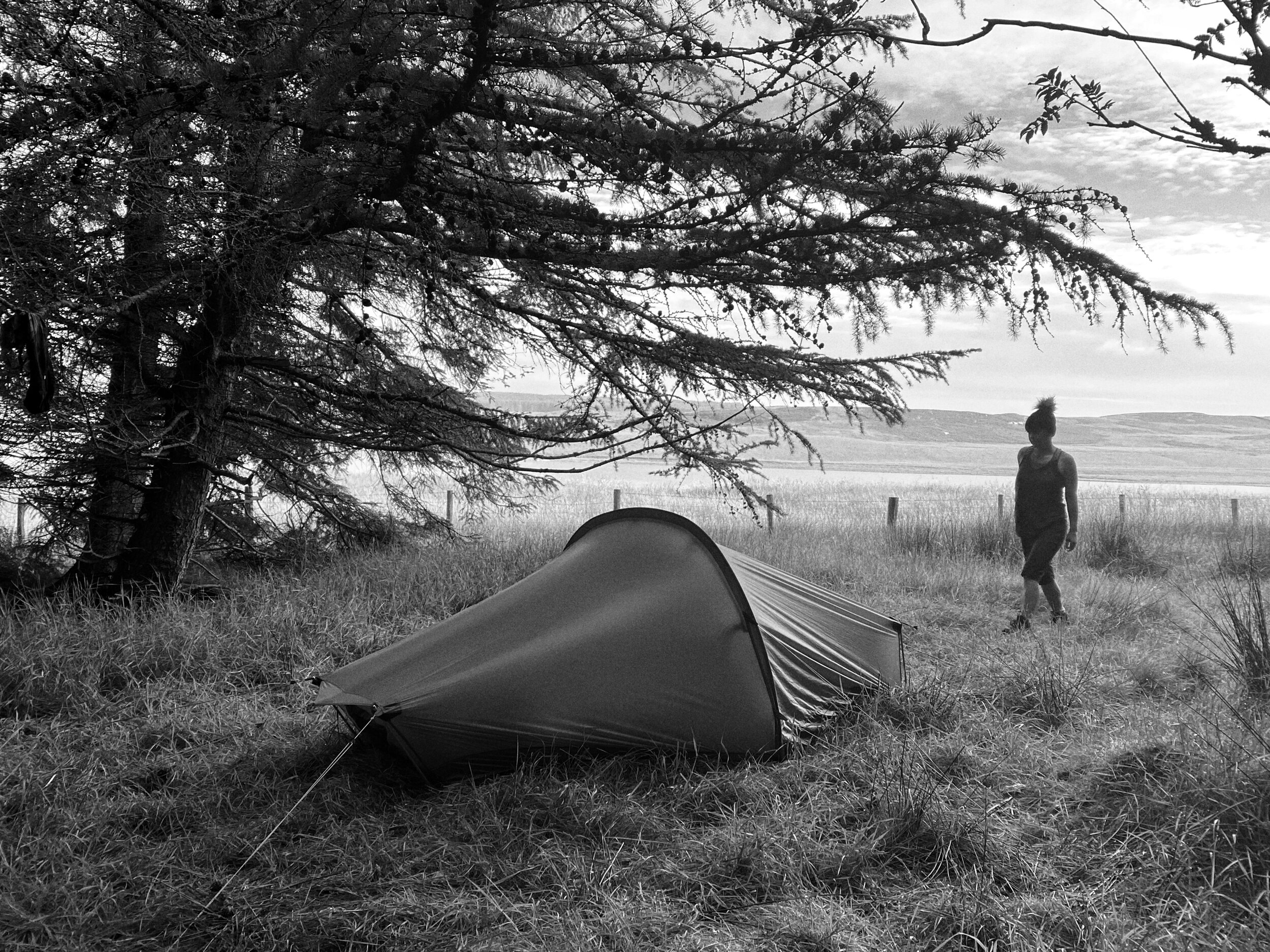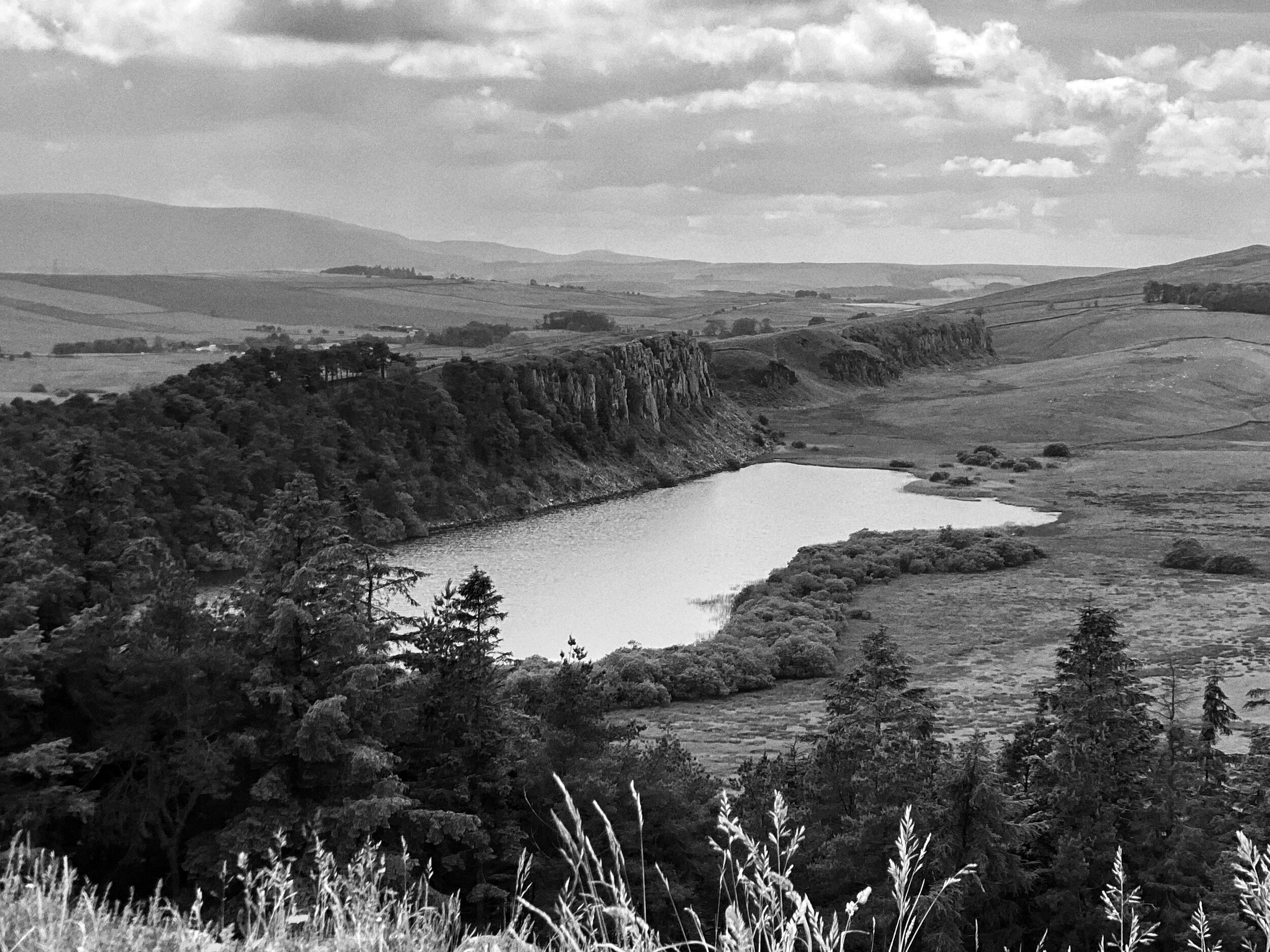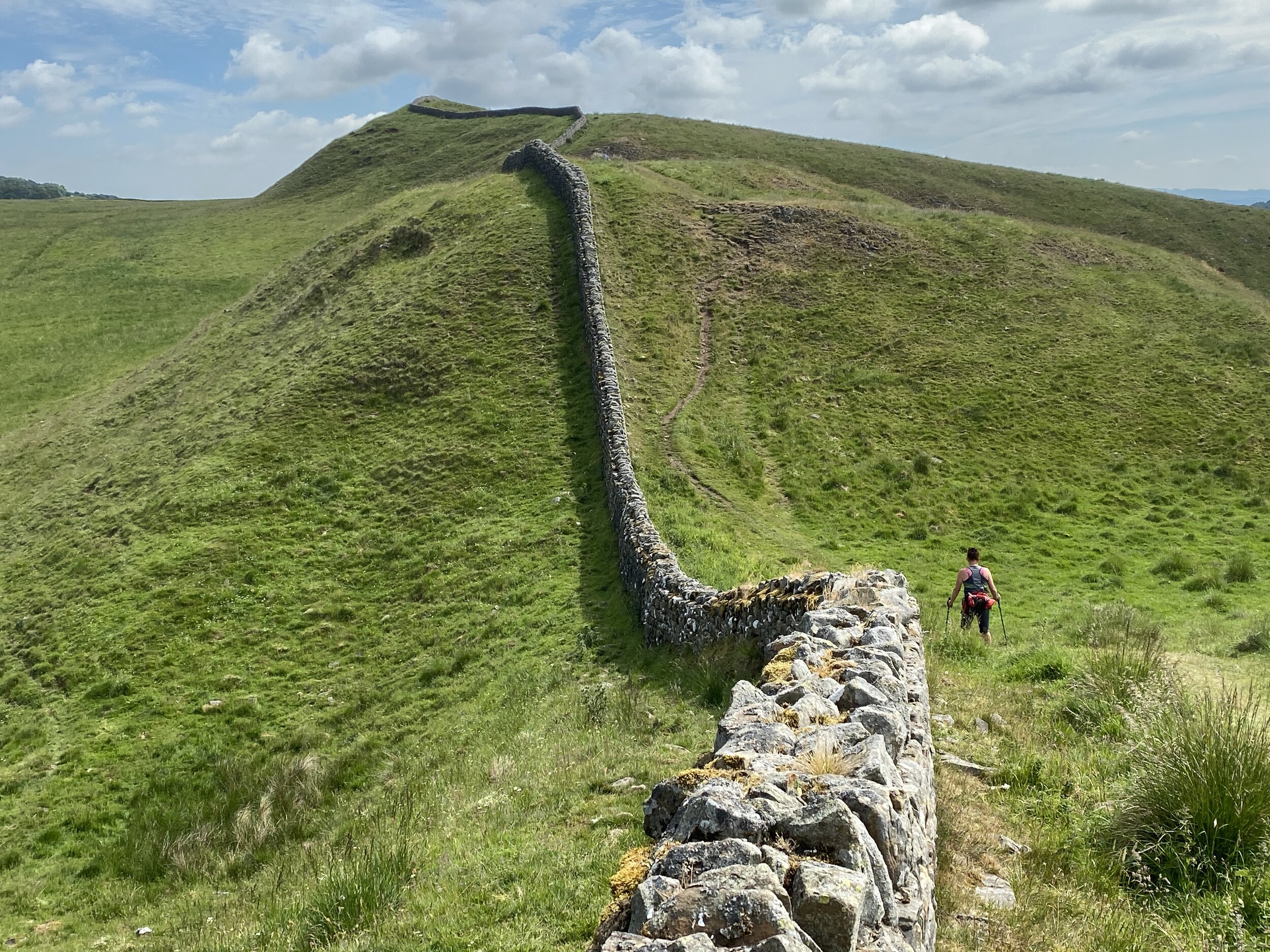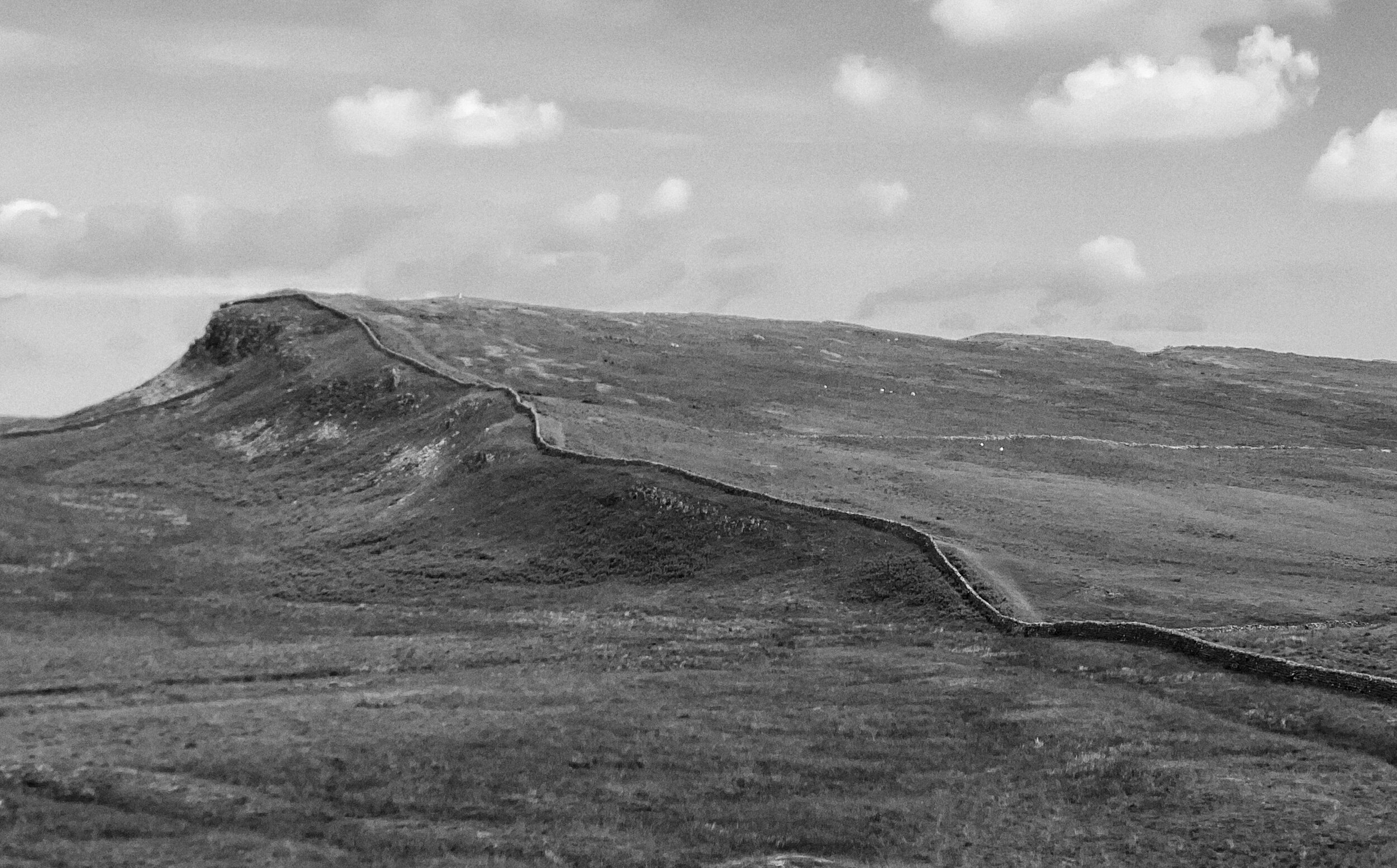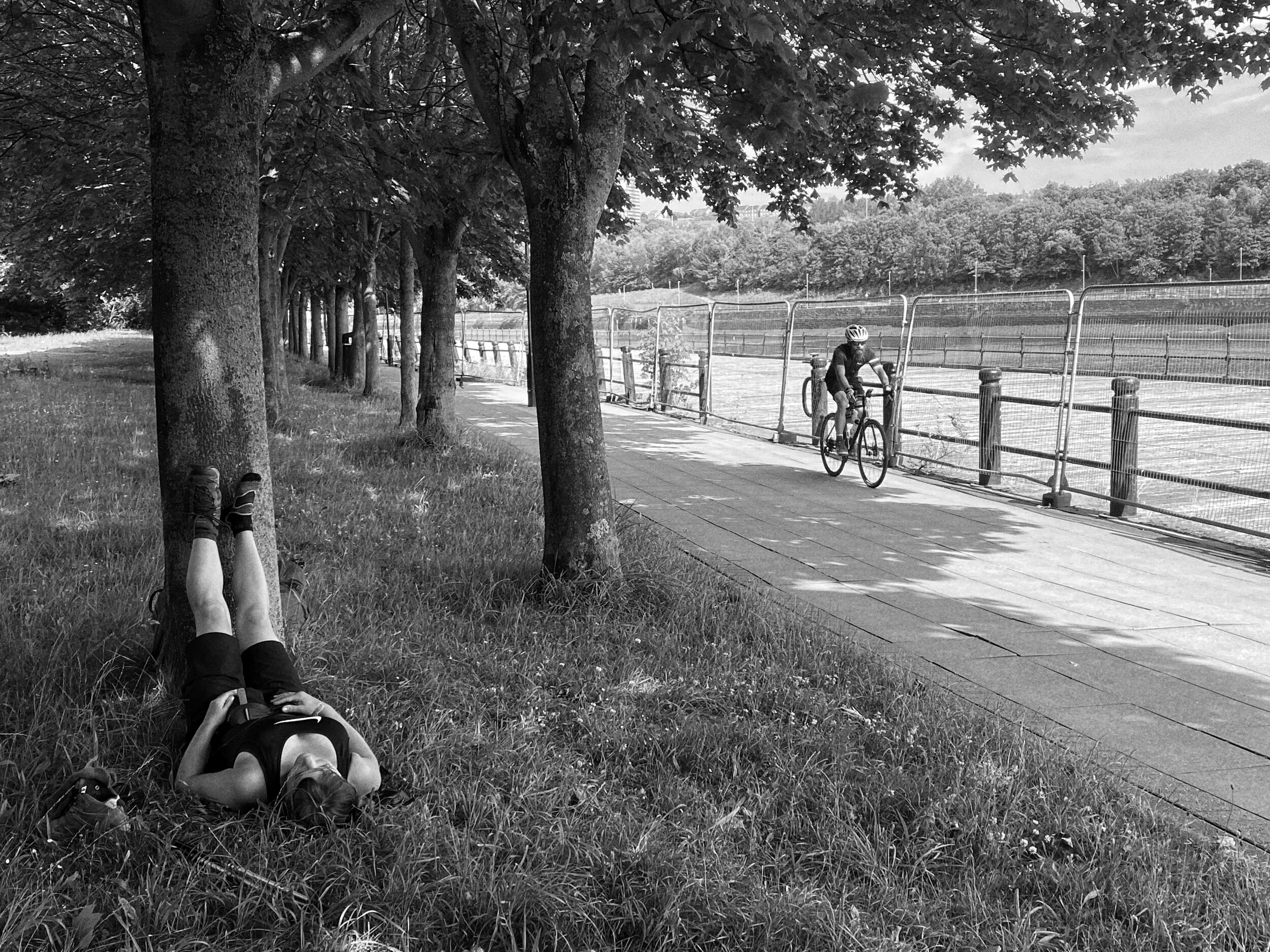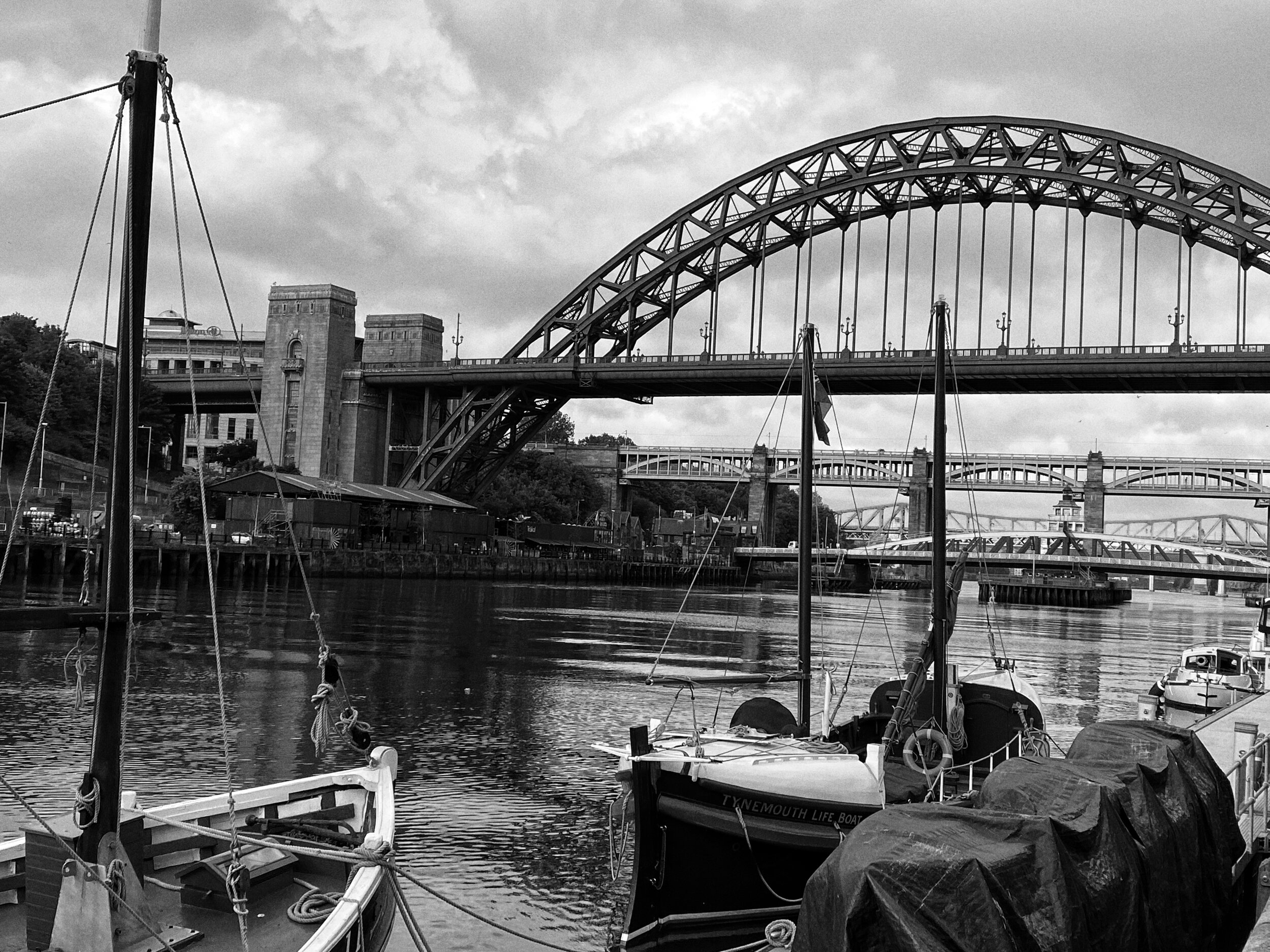Why Do We Hard Things Interview with founder Ian Finch
Interviewed by Fjallraven, Walk Wild founder Ian Finch discusses the benefits of taking on challenges that help us learn and grow, not just about ourselves but the teams around us.
"Music for Nature" Walk Wild's Spotify Playlist
As we all know, music plays a huge role in our lives, and the right playlist whilst out hiking or on route to a walk can really add to the sensory experience and journey.
With that in mind, are you on Spotify? If so, we here at Walk Wild have curated an exclusive and bespoke playlist entitled “Music for Nature” over on the platform. Featuring acoustics, instrumentals and subtle sonics from Ben Howard, Bon Iver, Rolling Stones, Phoebe Bridges, Jose Gonzalez, Mazzy Star and Ten Towers to name a few. This musical landscape will evolve each week to offer music to accompany your forays into the green spaces and wild places near you. Simply click on link above or search for the playlist and look out for our Oak Tree icon. Lace up the boots or sit back and enjoy..
Walk founder Ian Finch writes for Much Better Adventures on his tips to prepare for a multi-day hike
Walk Wild Features in Hertfordshire Life Magazine - July 2022
Walk Wild founder Ian Finch had the pleasure of leading journalist Richard Burton for a small journey through one of his favourite wild spaces in North London
Bespoke Walk Wild Ordnance Survey Map for all Nav Workshop Attendees
Chuffed today to be printing our bespoke Ordnance Survey maps for our Walk Wild Navigation Workshop attendees. Folding the map in windy conditions has proven to be an epic and harder than the nav itself, so we are hoping these will be easier to stow!
Walk Wild launches its first Adventure Skills Weekend in the Peak District
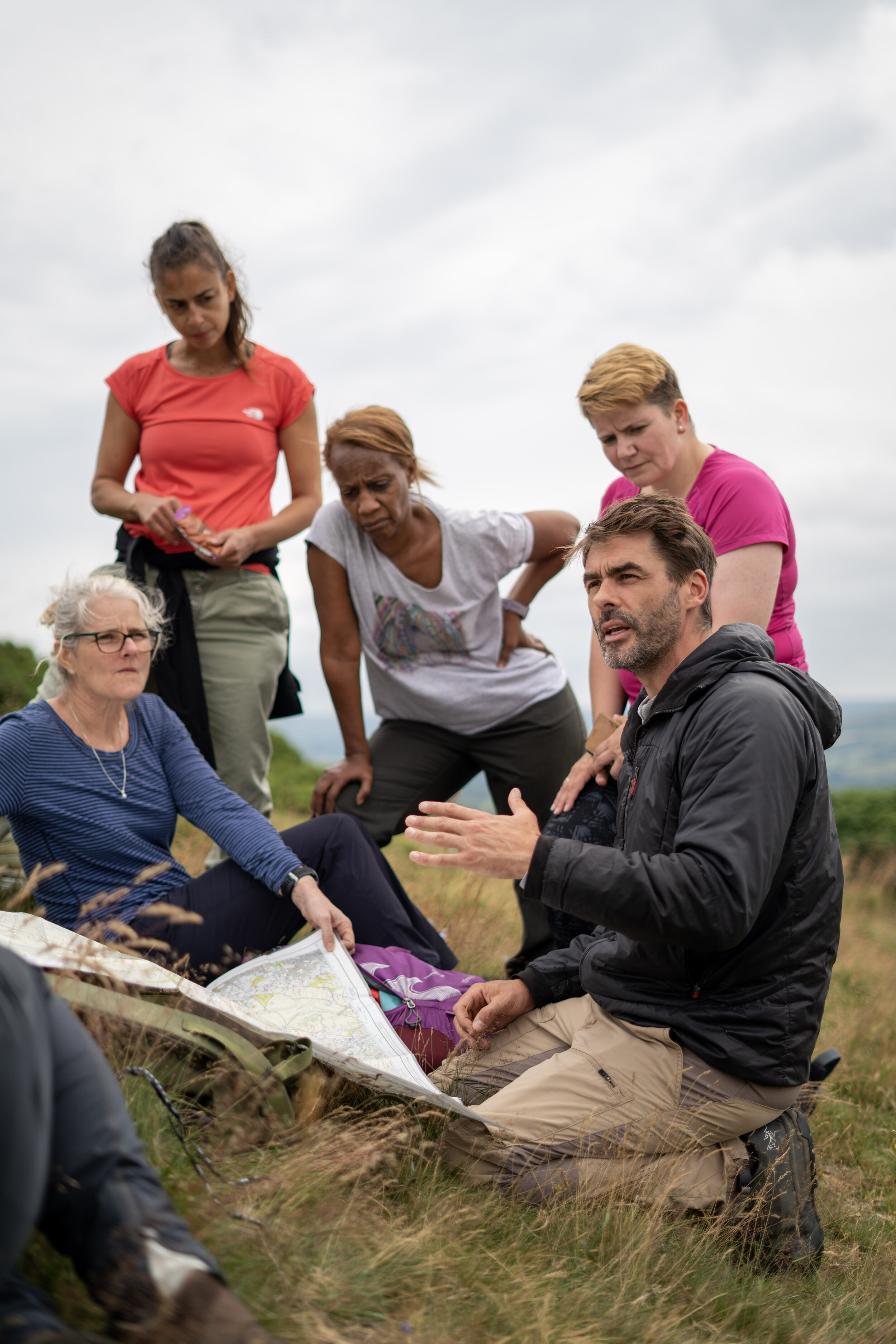
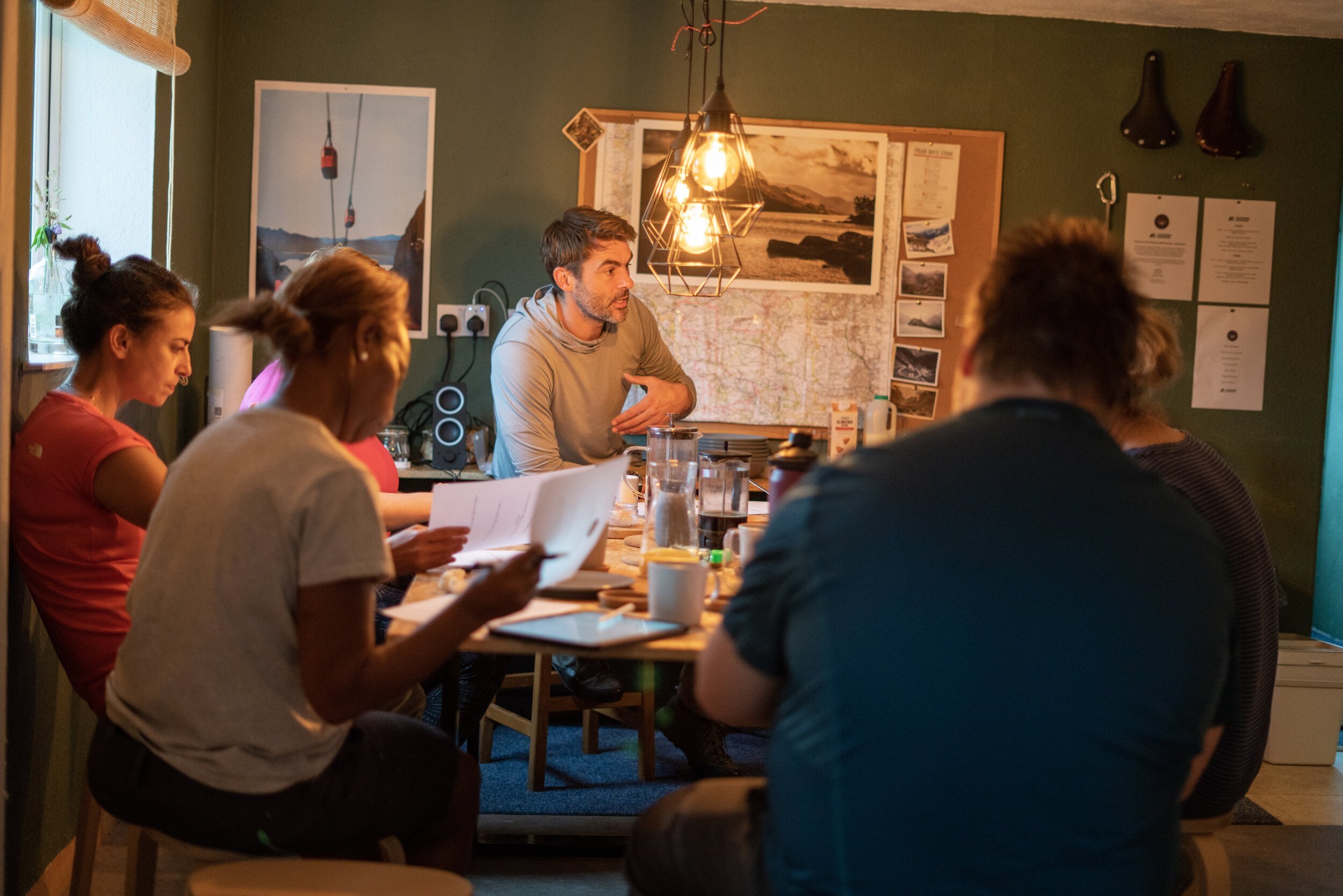
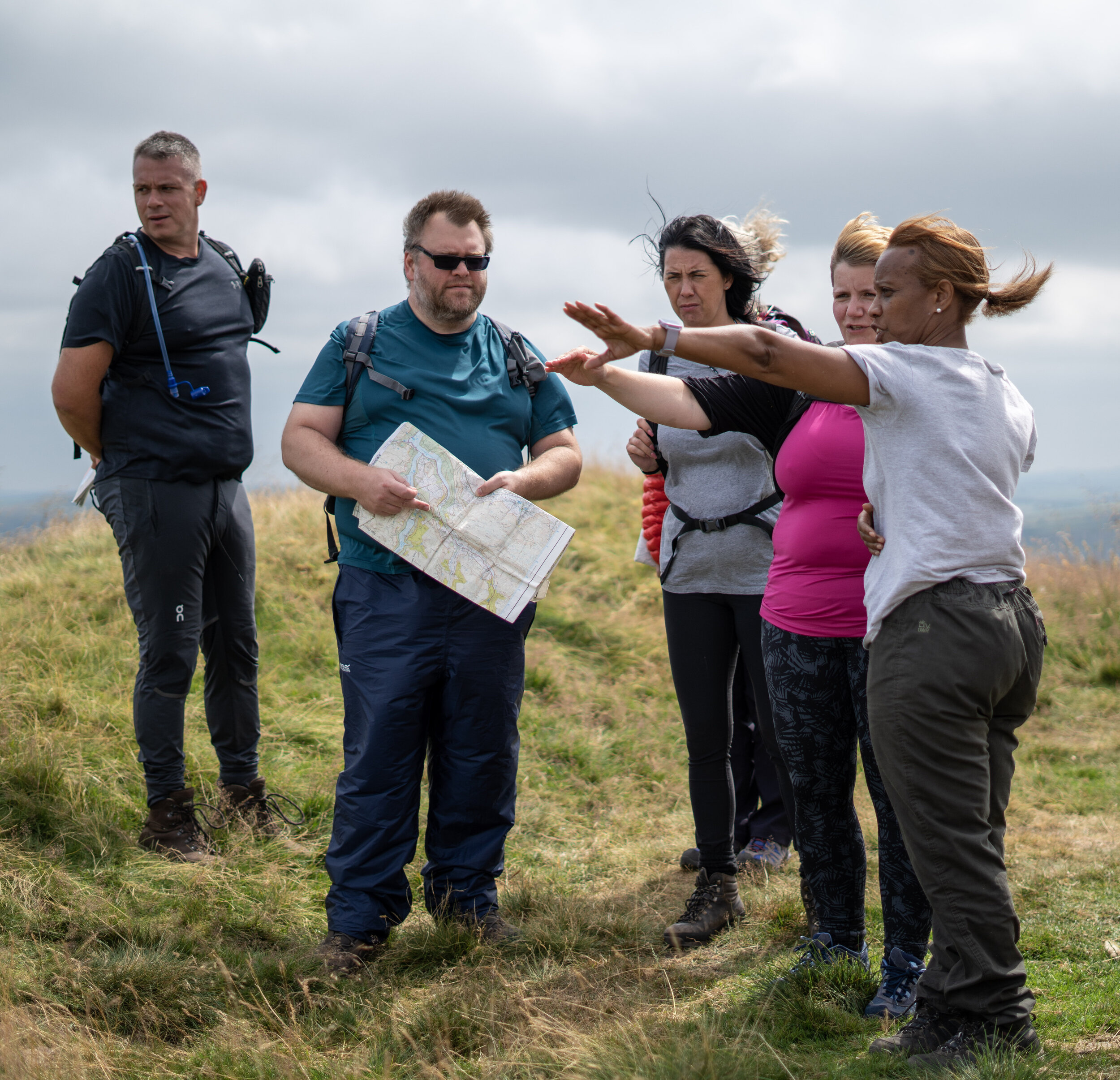
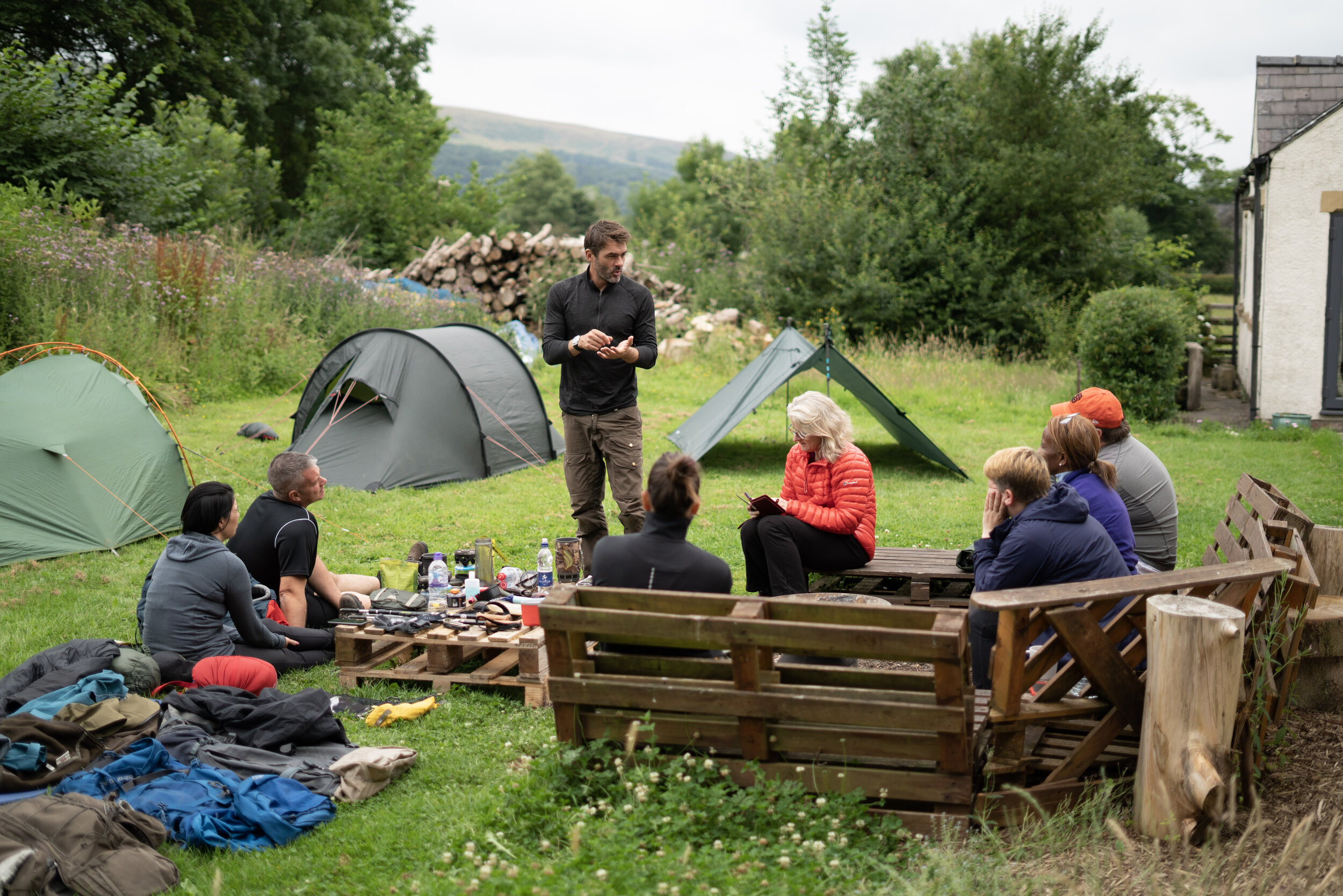
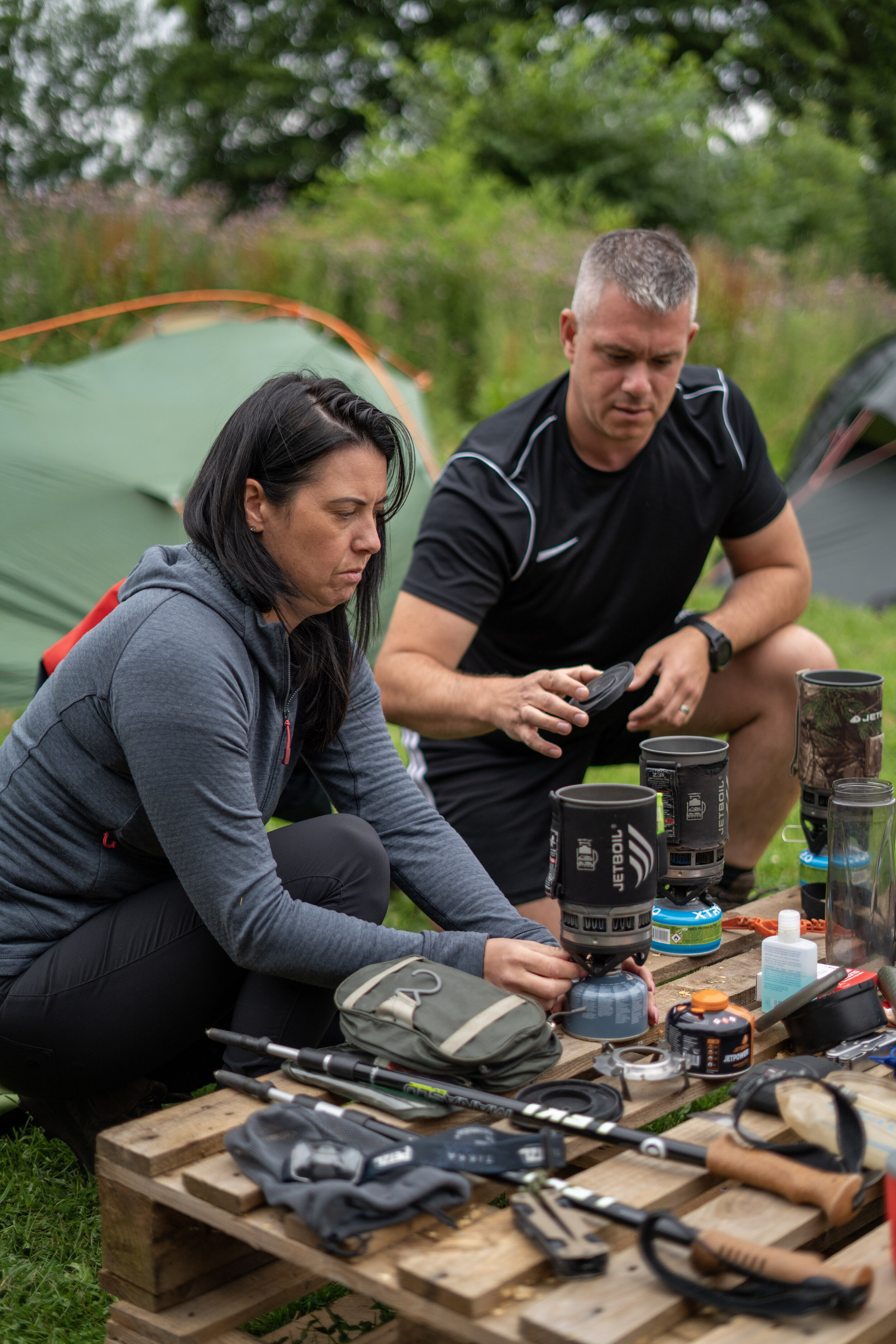
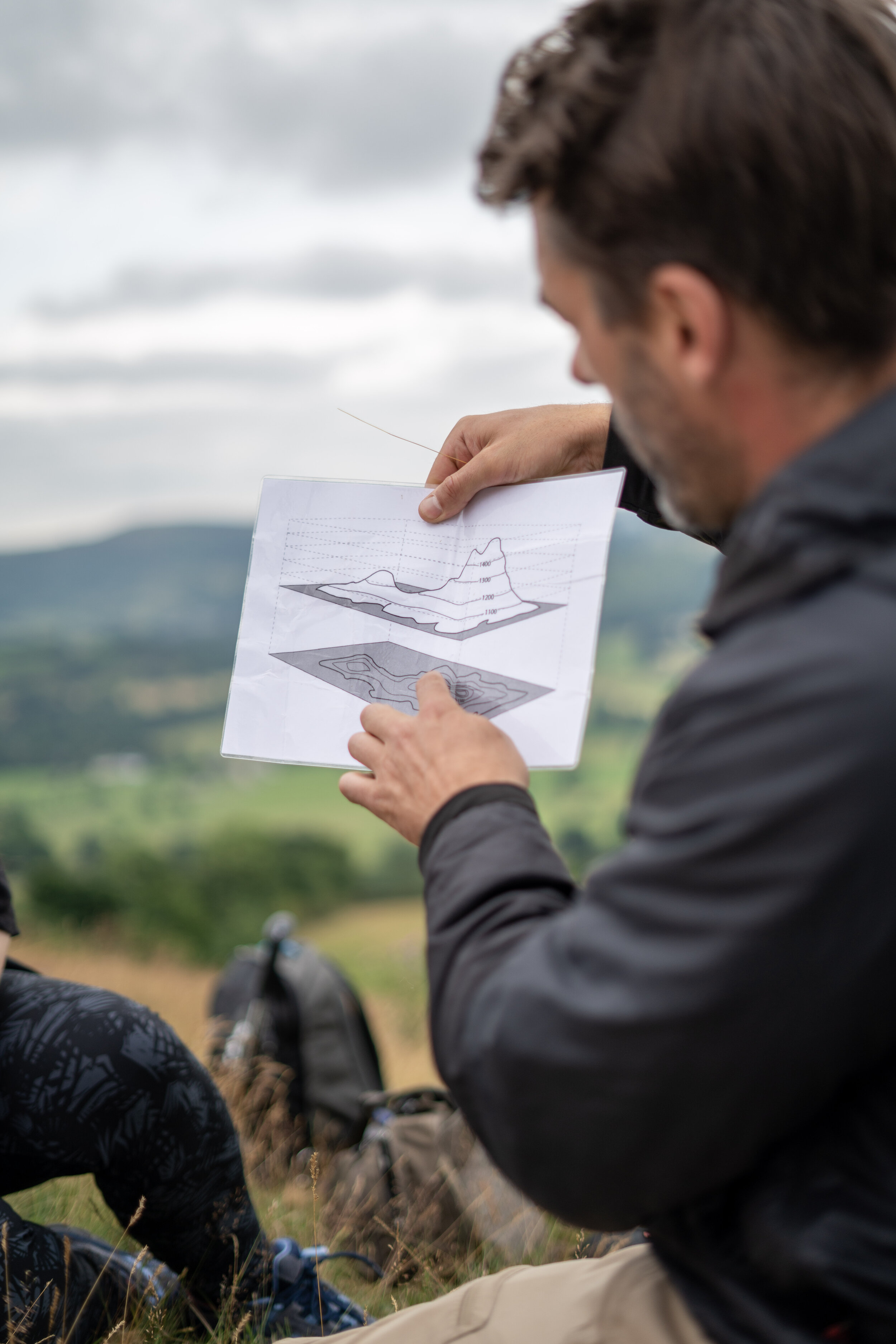
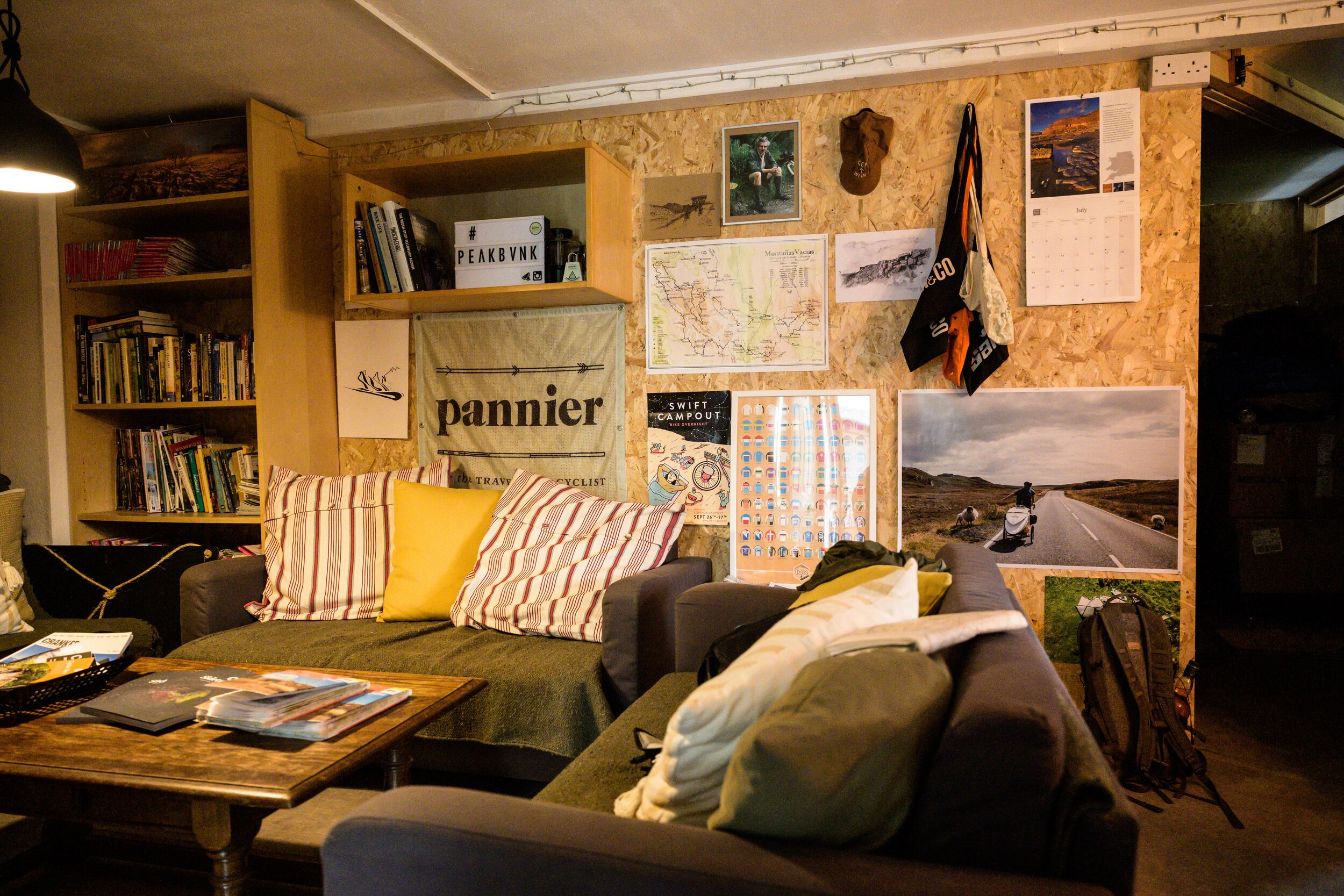
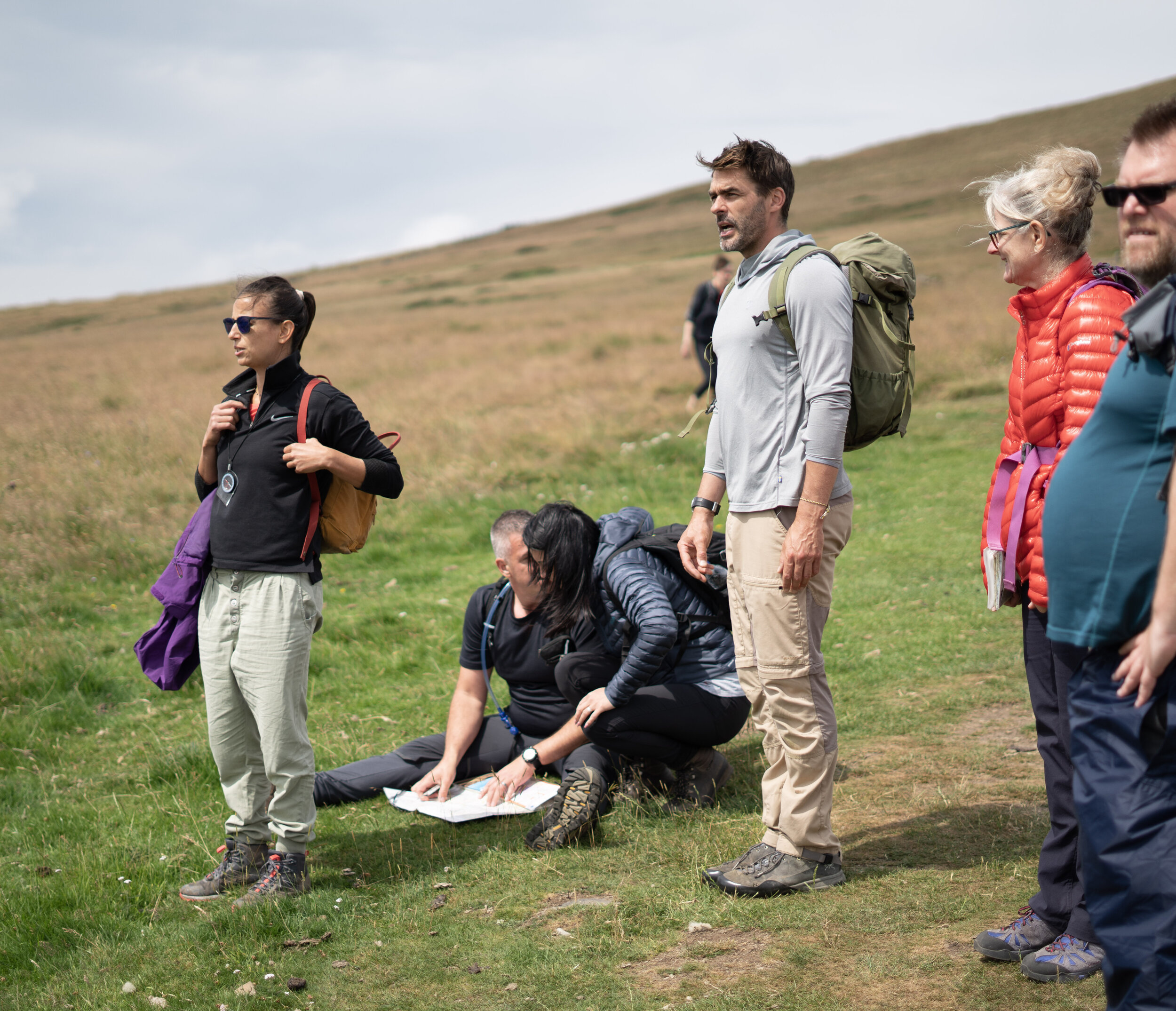
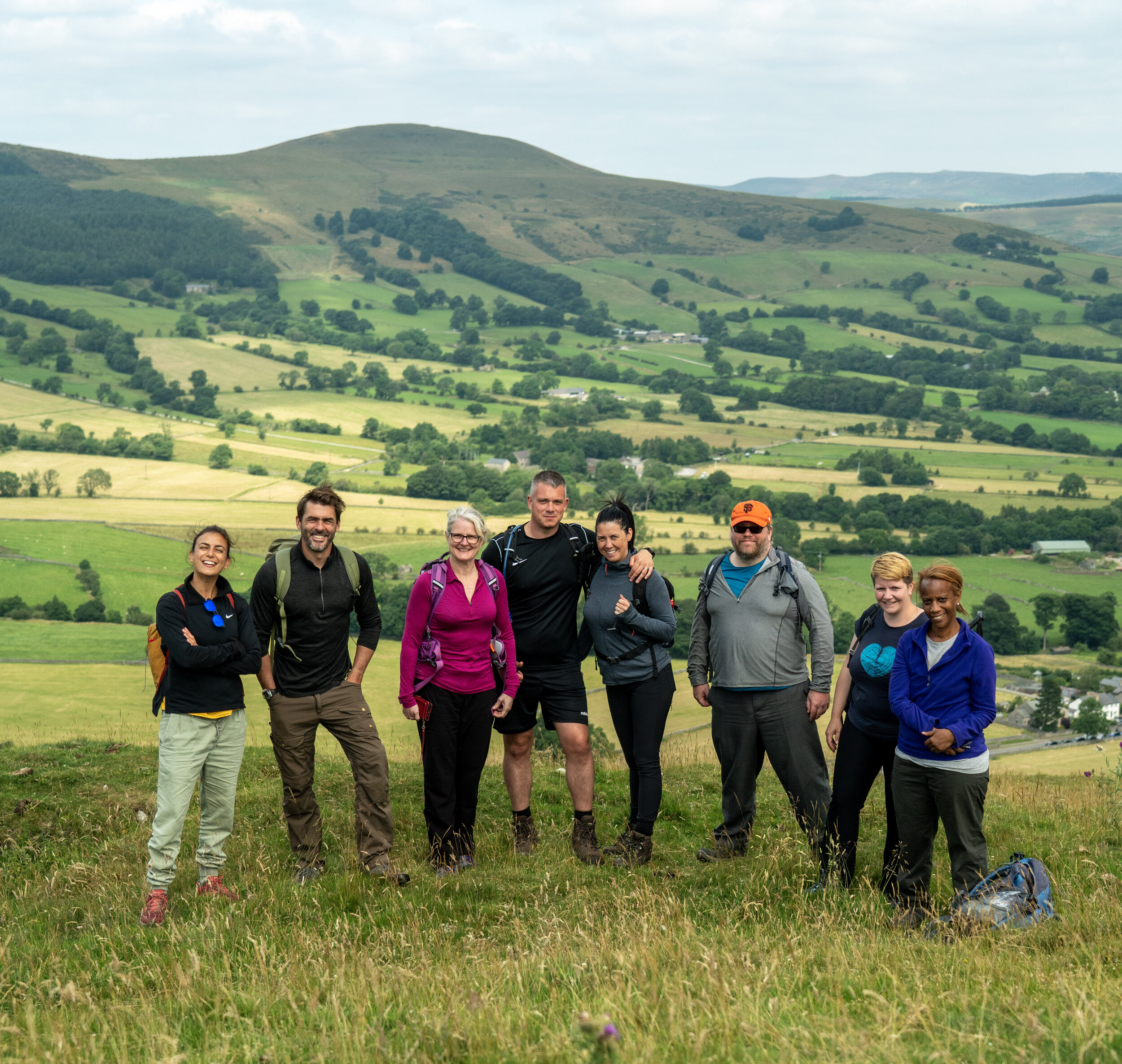
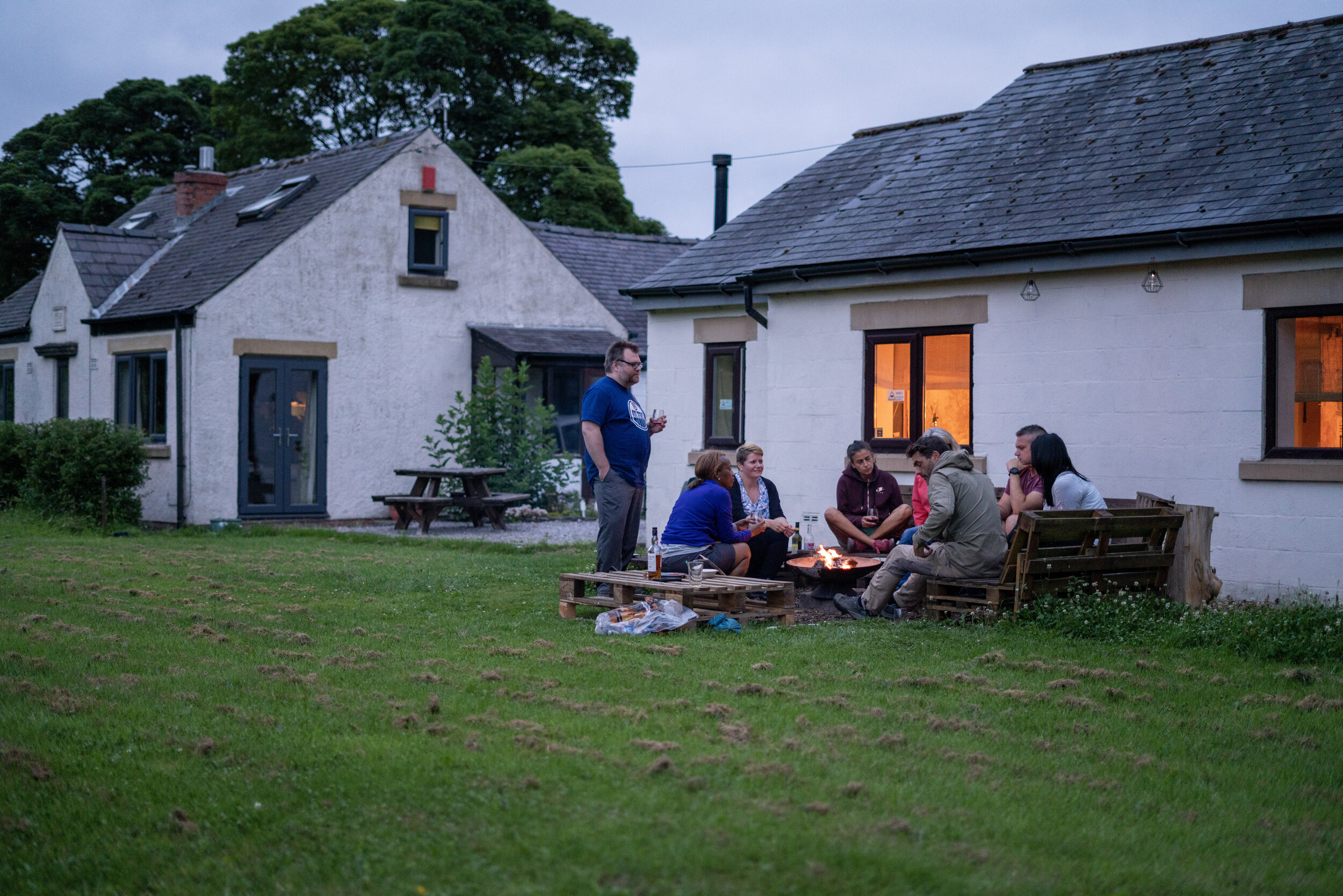
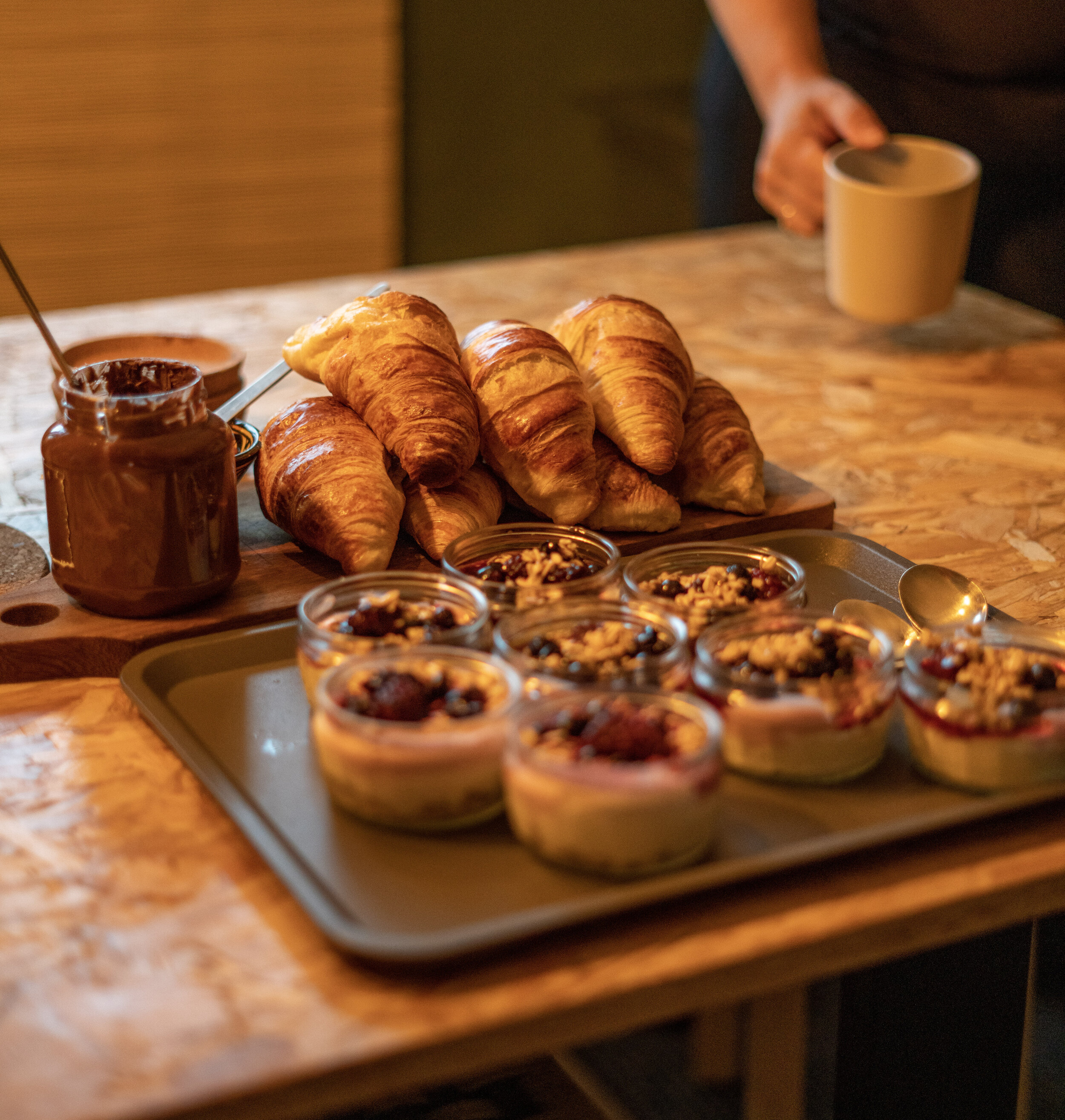
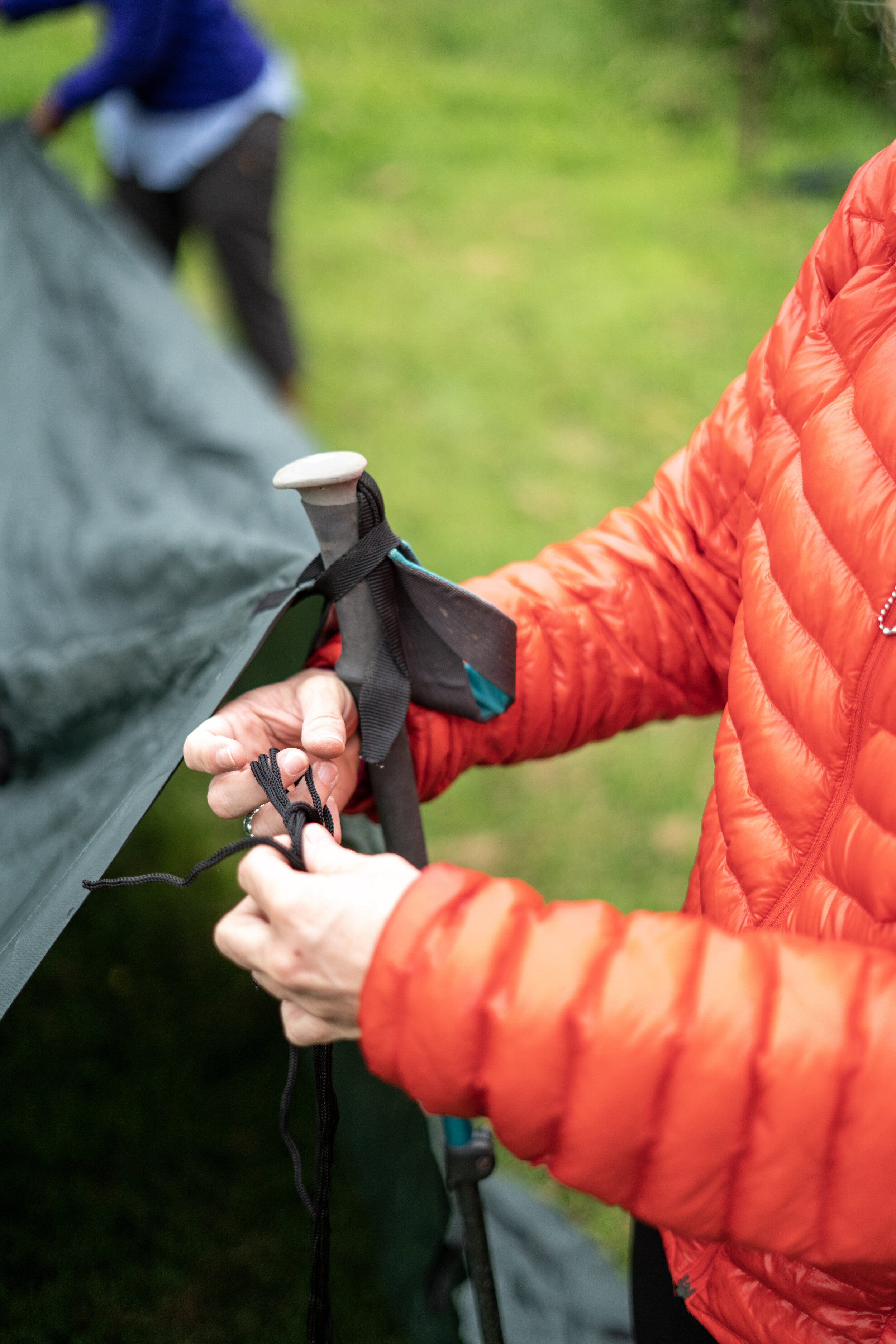
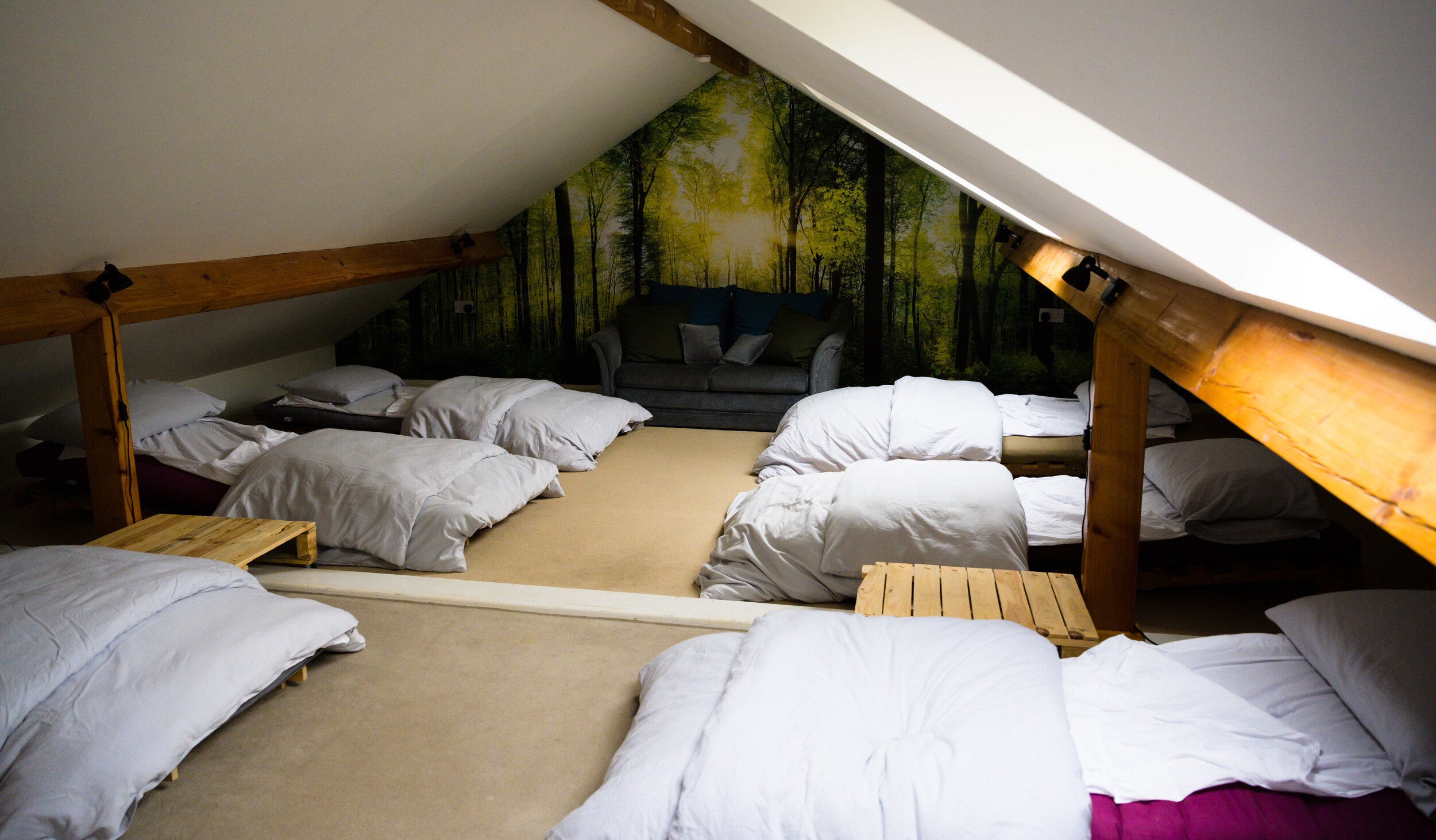
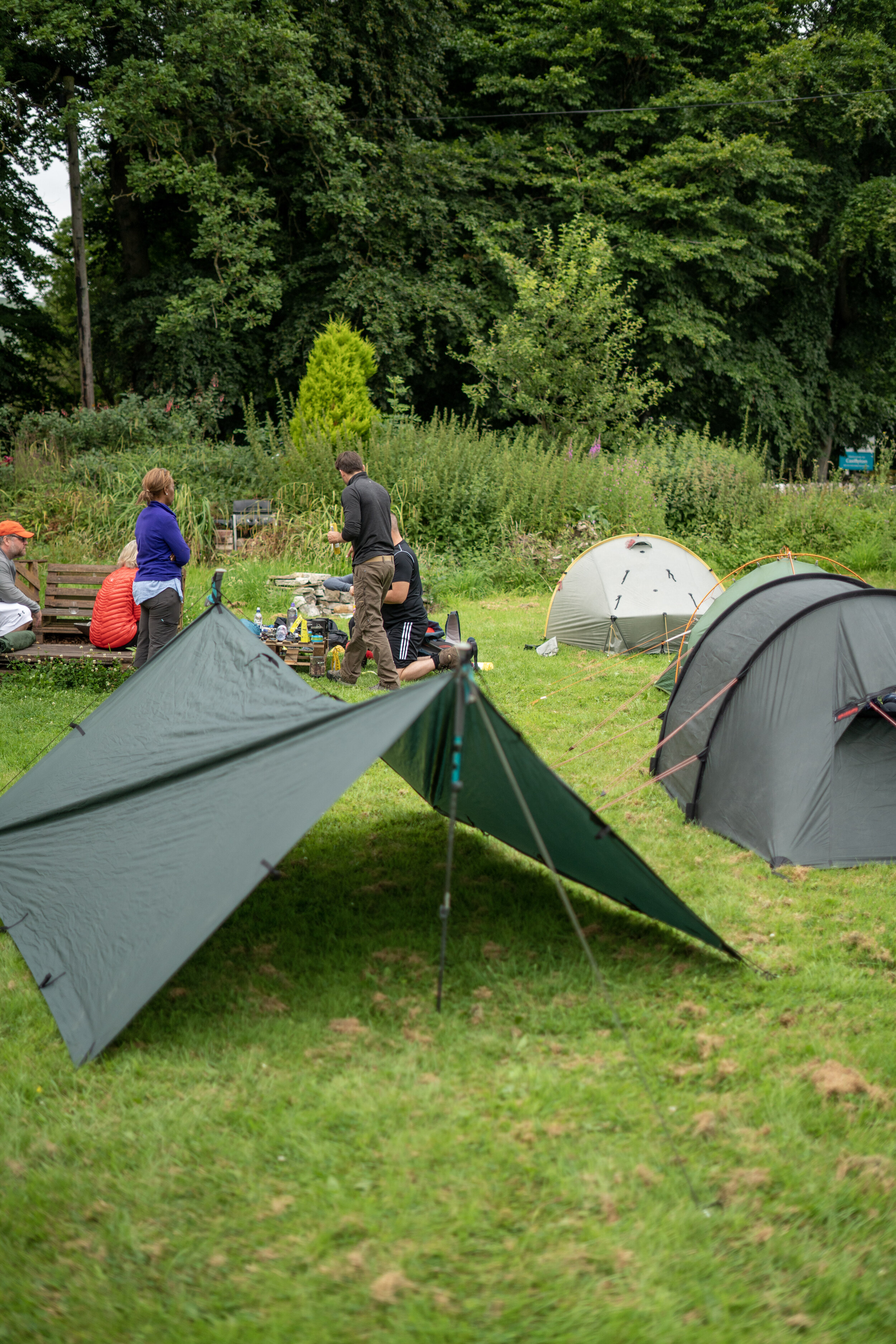
This weekend (July 24th/25th) we launched our first Adventure Skills package to seven future explorers that are looking to gain valuable planning and practical skills to make their dream adventures a simmering reality. We covered everything from tent selection, adventure nutrition, map reading and navigation, trip planning and logistics, safety, water sourcing and filtering, cooking, sleeping mats and sleeping systems to tips and tricks from over 6 years expedition experience. JAM packed. This journey was made possible by our friends at Much Better Adventures, Firepot Outdoor Food & Stef Anamato - Lead by Ian Finch and Jamie Barnes - Our weekends run monthly via Much Better Adventures until December.
Images: Jamie Barnes
★★★★★
“Can’t thank you enough Ian and Jamie for leading this ‘must do..can’t miss’ weekend in the Peak District. Oozed with the adventure you both love and the experience you wanted to share. You created a fabulous environment of learning. Super pleased to have had the opportunity to experience beautiful surroundings and meet like-minded folks and make plans for the future. Most of all we had fun fun fun and lots of smiles” - Pam, Worcestershire
Hadrians Wall Walk - 84 miles coast to coast across the UK - Walk Wild
At Walk Wild we take great pride in guiding people on journeys with a purpose, be they on land or sea, day walks or longer multi day trips. What matters is that these journeys shape and teach us not only about the intricacy and beauty of our wild places but challenge our way of thinking mentally and physically.
A week ago we guided and finished the 84 mile coast to coast route along Hadrians Wall with Rachel Perry. After 4 spinal surgeries and years of daily chronic pain this journey was not only about management of the day to day physical challenges of her condition, but what is mentally possible for someone who has undergone what she has. We both believed with the right planning, positivity and patience anything is possible - and it was! A beautiful journey.
Walk Wild assisted Rachel in route choice and daily navigation, pre journey kit prep, safety, food/water, photos along the way and our daily hiking/guiding service along the entire route. Would you like to walk Hadrians Wall Path? - contact expedition leader Ian Finch here
Walk Wild features in The Guardian - The top 5 walks in Britain
Walk Wild's Adventure Skills Workshop features in The Guardian's 15 of the Uk’s Best Creative Retreats
Planning for Greatness - Interview With Ian Finch and Marloe Watch Company
Phase 1 - Laying the groundwork
1. How long do you spend planning for contests or expeditions and how far in advance does this begin?
Planning for expeditions really depends on the nature and complexity of the journey. Some are over a greater distance and time period, so in-depth planning is needed. Smaller journeys require a little less time, yet all require quite a lot of attention to detail – When I descended 2000 miles of the Yukon River that took a year of prep. The planning of expeditions is the hardest part, pulling all the moving pieces together is a lengthy process.
2. At which stage do you look at preparations for kit or equipment and what does this involve?
Usually when the expedition is chosen upon then kit comes next, so early stages. Again, this revolves around the discipline within the journey i.e. climbing, canoeing etc – This then dictates the nature of, and amount of the equipment carried to complete the journey. At this stage we look at developing partnerships with trusted brands that share the same values for the expedition that we do.
3. How and when do you plan logistics, travel and routes?
Expedition routes come at the initial stages of the planning and is something that is in flux throughout planning. Sometimes it changes when new information about terrain or local info come in. In some cases, changes continue to change up until you go, and as you progress. The route chosen then has a direct influence on equipment taken, location of food and water resupplies or carrying it with us, safety and so on.
Getting physical
4. How long before contests, events or expeditions do you start physical training?
I would say 3 to 6 months before, depending on what training is required. If it’s technical or skill-based training this could happen 1 year before so you can then refine and develop that skill.
5. How much time do you physically train per day/week? Is it possible to quantify how much time in total is spent physically training?
This depends on the physical nature of the journey. For canoeing being out on challenging rivers and waters could constitute training, yet if you’re climbing or walking a large distance then those journeys require exped-specific training. 1 or 2 hours a day, 3 to 5 times a week would be a good place to be at the height of your training schedule.
6. What does this training involve?
This is based around your journey and what that involves. The best advice would be to get as close to preparing your body exactly how it’s going to be tested in country. Set achievable goals, take your time, build your fitness up to avoid injury, improve nutritional intake and work on building a balanced mindset – The more in detail you prepare the more prepared you’ll be.
Does the training and overall preparations gradually build up?
Yes, without doubt gradually, one step at a time and in small increments. One thing I learnt from my time in the Royal Marines, you can prepare physically and mentally for what you about to do, but unexpected things happen. Routes change and weather can make things considerably more challenging. In the training phase add another 10% extra training on top of your efforts for the unexpected that will be sure to arise.
7. Is a complete ‘dry run’ possible to try and replicate the experience as closely as possible?
If a dry run is possible then take that opportunity with both hands. This way you can directly look at your process and procedures, your skillset, fitness, safety aspects and importantly the suitability of your equipment for the journey. If changes need to be made you can make them there.
The lifestyle
8. What is the biggest sacrifice you have to make during preparations? (eg diet, alcohol, late nights etc)
Money, time and lifestyle. If your expedition has a lot riding on it, you want to be prepared as much as possible. If you are serious about making it a success, then your current lifestyle will have to undergo some basic sacrifices.
9. What do you for down-time when you’re not training?
Rest and planning. In the down time detach, stretch and relax. If it consumes your thoughts apply that energy to going over plans and try to visualise obstacles and challenges.
10. How is your sleeping pattern affected?
Getting good sleep and allowing the body rest time is almost as important as the physical training itself. Maintain healthy sleeping patterns and focus on this part of your training as much as diet and kit prep. Aim for 7 to 8 hours a day in a cool room.
Eat. Sleep. Train Repeat.
11. Describe your training diet?
Lots of good balanced calories, as close to the original nutritional form as possible – Good hearty breakfasts of oats, nuts, honey, fruit and a raw green juice. Throughout the day keeping the good calories going and making sure that everything that goes into your body is a healthy and balanced as possible. Maybe also include supplements to that diet – Iron, Zinc and Turmeric.
12. How many calories do you need to eat per day and what foods do you avoid or crave?
Again, this is very fingerprint specific for the person, their nutritional needs and the journey they are preparing for. I avoid high sugar, high fat and high heavy carbohydrates that cause spikes and crashes. Balance is key.
13. How much water do you drink per day?
Minimum 1.5 litres. Excluding a pint of raw green juice, I drink every day.
The extra 1%
14. Are there any special tricks or techniques you undertake to prepare for tough conditions? (weather, intensity, calorie usage)
Familiarity helps. Expose yourself to similar conditions, under similar mental and physical stress. Take your training as close to the expedition as possible. Test kit and how it’s meant to be used. A tennis pro doesn’t train for Wimbledon by sitting at home reading on books on the best techniques and strategies. They put the hours in out in the cold and the heat, they battle, refine and grow. When Wimbledon comes the only thing to deal with is pressure and adapting to changing circumstances. Expeditions live under the same principle. Train for the final.
15. What was the most difficult thing you had to overcome during training?
Injury is a big thing. Train hard yes, but train smart. Don’t push yourself so hard that you’re risking injury and jeopardising the exped taking place. I’ve had shoulder injuries before canoe expeditions. That’s the time when you go into rest and recover mode. Good sleep and nutrition.
16. Does training involve your friends or family? Are these relationships impacted during the build-up?
Training can certainly involve friends and family, if they are willing and capable enough to join you. Sometimes this will give them an insight into what you’re going to be doing, this can reduce their anxiety while you’re away. Relationships are always tested, especially if you’re away for 3 months. Communication is key.
17. How do you prepare mentally for what’s ahead of you.
Good preparation prevents poor performance – mentally and physically. Preparation reduces anxiety and visualising as much as you can about what can and will change or go wrong. Also, accepting that things will change, sometimes rapidly, for the best and the worst. Have a flexible proactive mindset.
Game-on
18. What is your routine the night before? Any special preparations?
Check and re-check kit. Go through lists, check the important stuff, relax. By that stage all logistics and prep should be done. Speak to family, say goodbyes, tell everyone that you love them.
19. What is your routine the day of the event?
Take a deep breath, trust the process. You’ve come a long way to the start line. Place one foot in front of the other and remember how lucky you are to be there.
Ian Finch podcast with Between the Mountains - Expeditions, wild places and culture
Ian Finch and Walk Wild partners with Ordnance Survey
As a young man I always ventured into the outdoors to explore, most of the time curiosity led, without any form of mapping. As my journeys and UK based expeditions matured, so did my requirements to understand detailed topography and landscape, terrain and mapping. I’ve always thought there is something beautiful and magical about maps, I have old charts of remote rivers, even continents and far flung islands - Yet none are more interesting than home. I study them, I even marvel at the colours and contours, and network of trails, those ancient and new that permeate the vast landscape of Great Britain. It’s more than an honour that we have partnered Ordnance Survey - as a thank-you to the Walk Wild community in the coming weeks, and with a very special code, you’ll be able to get your mapping requirements at a discount when you order online at www.ordnancesurvey.co.uk
Bring The Outside, Inside - Exploring The Summits and Peaks of Your Mind during Lockdown - Written for Fjallraven Clothing (Copy)
Exploring the Summit and Peaks of Your Mind
For those of us whose passion it is to try and cross physical or geographic boundaries, recently our boundaries have become that of brick and mortar of which we are encouraged not to leave. Some will see this as a time to reset and recharge, whilst others will struggle with loneliness and isolation. I’m a great believer that landscape and adventure first originate within the mind, well before they are played out on the rock faces or summits for real. Lets cultivate support and positivity as a local and wider community and never forget that we can all wander, climb and explore the landscapes of the imagination, as no boundaries exist there.
Bring the outside, inside:
Like many, I go into the wild places for nature induced connection and creativity, to test myself and to release the overwhelming pressures on the modern mind. It’s always been a place to get away from the rhythm and rush of contemporary life and the never-ending stream of external stimulation constantly pulling at the strings of our senses. I would go as far as saying nature is a sanctuary. I believe it’s the wilderness herself and time spent outdoors that heals, restores and teaches us well beyond the physical landscape of the body. For me, thats why the boundaries of the four walls have never felt so small.
Yet how can we cultivate that yearning for the wild places from the frontiers of our home and what can we do to stay positive and proactive?
• Conceptualise – Dream big, unfold maps, journal & write. Research regions & landscapes, routes, ranges or rivers.
• Read, Listen & Learn – About the machinery of nature, the living world and how it works.
• Plan – Where would I like to go, with who, how and most importantly, Why.
• Story – What story would I like to tell? - A human, geographic, environmental or global story?
Treasure and Drive
Ive found working on those steps will create a spark, like the clash of flint on steel. A spark that will, in time, ignite an ember, that leads to a precious appreciation for time spent outdoors. The reality is that we are for the time being, somewhat confined by the structural borders of our homes, but not the vast fabric of our imaginations. Not for one second does that mean we can’t dream, plan and imagine. In time, things will return to normal, our feet and smiles will find themselves on the back-country trails once again and we’ll have a new appreciation and perspective of the wild places we will come to know and love. For the time being, it’s all a lesson in patience.
Keep exploring people, even just for now, into the summit and peaks of your imagination.
(Film) Ian Finch - Language of the Wild
Ian Finch - Podcast Interview with Natalia Komis - Happiness In Simple Treasures (Copy)
Listen to Podcast here: Happiness in Simple Treasures
“A conversation with Ian Finch, who’s mantra – entertain, educate, inspire – not only describes his way of showing up and living his mission but also this conversation. Former Royal Marine Commando Ian Finch, is an adventure and outdoor brand photographer, expedition guide and journalist whose been travelling to remote environments for over 10 years. He is dedicated to sharing and creating stories that depict a simpler way of life, bring to light our connection with nature, teaching us about ancient traditions, inspiring others to find their own adventure and give back in the process. This is a journey of limitless possibilities, of human potential, cultures, expeditions, timing and our right to harvest amongst other things.”









